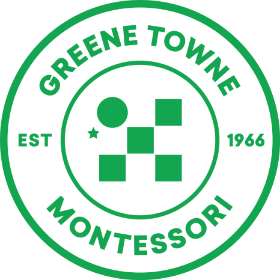PADM: The Limelight is on Language
In this blog post, we are highlighting the Language curriculum, introducing a new staff member- Teacher Bailey-, and reviewing some upcoming events. Language in a Montessori Primary Environment “What would be the purpose of such an intelligence if man were not able to understand and transmit his thoughts? Without language how would he associate with […]
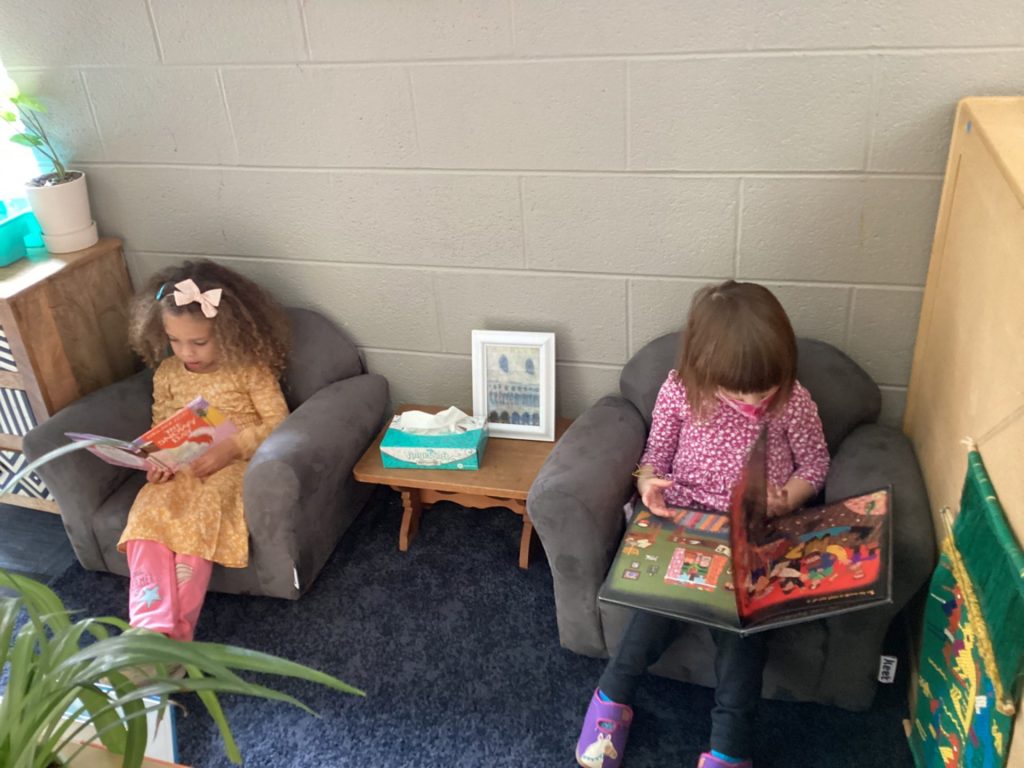
In this blog post, we are highlighting the Language curriculum, introducing a new staff member- Teacher Bailey-, and reviewing some upcoming events.
Language in a Montessori Primary Environment
“What would be the purpose of such an intelligence if man were not able to understand and transmit his thoughts? Without language how would he associate with other men to achieve a common enterprise, to perform work?”
Maria Montessori, The Formation of Man
Whether spoken, written, or non-verbal, we use language to unite our humanities. Language is how we share our experiences with each other and how we express our intelligence. Through language, we are able to glimpse that which is unknowable to us, the mind of another.
Incredibly, all the essential tools for language are acquired within the first three years of life, and refined in the first six. As adults, we have the humbling experience of watching the children undertake this awe-inspiring endeavor. The power to communicate and use language comes from within the child but the necessary material comes from their environment. Because of this, spoken language is about half of our work in the Primary environment. We are constantly communicating and offering your child tools to communicate. We do this through modeling, directly offering vocabulary, and listening to children. In a Montessori Primary environment, we have two primary methods of providing the tools for language acquisition in children, spoken language and written language.
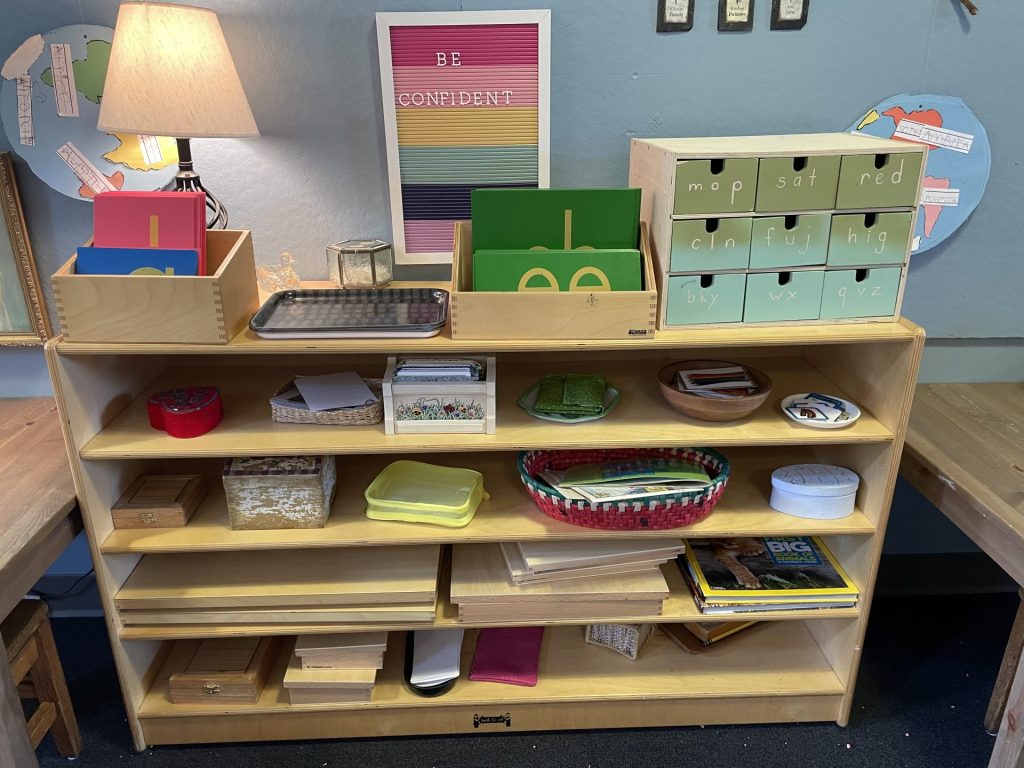
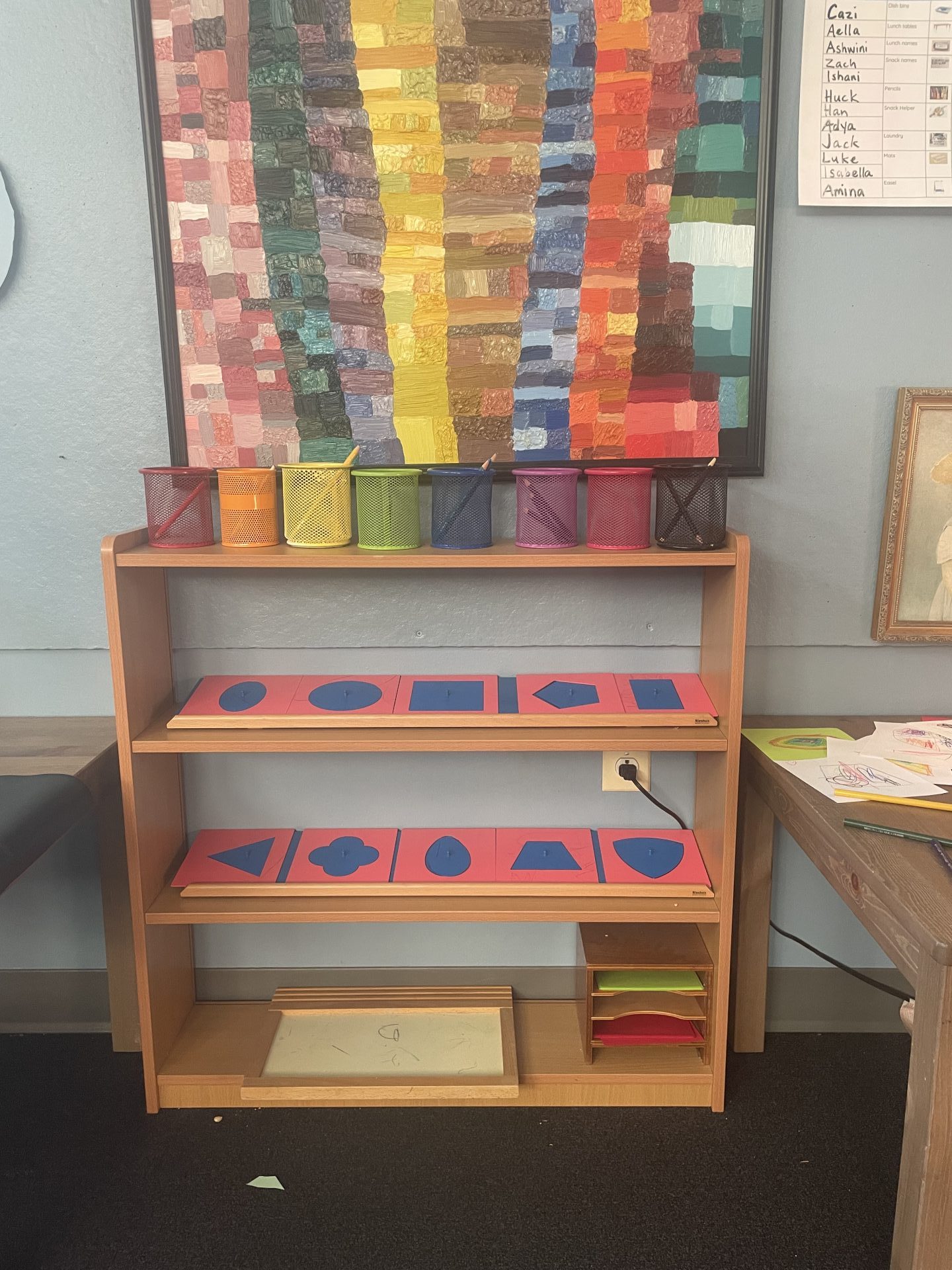
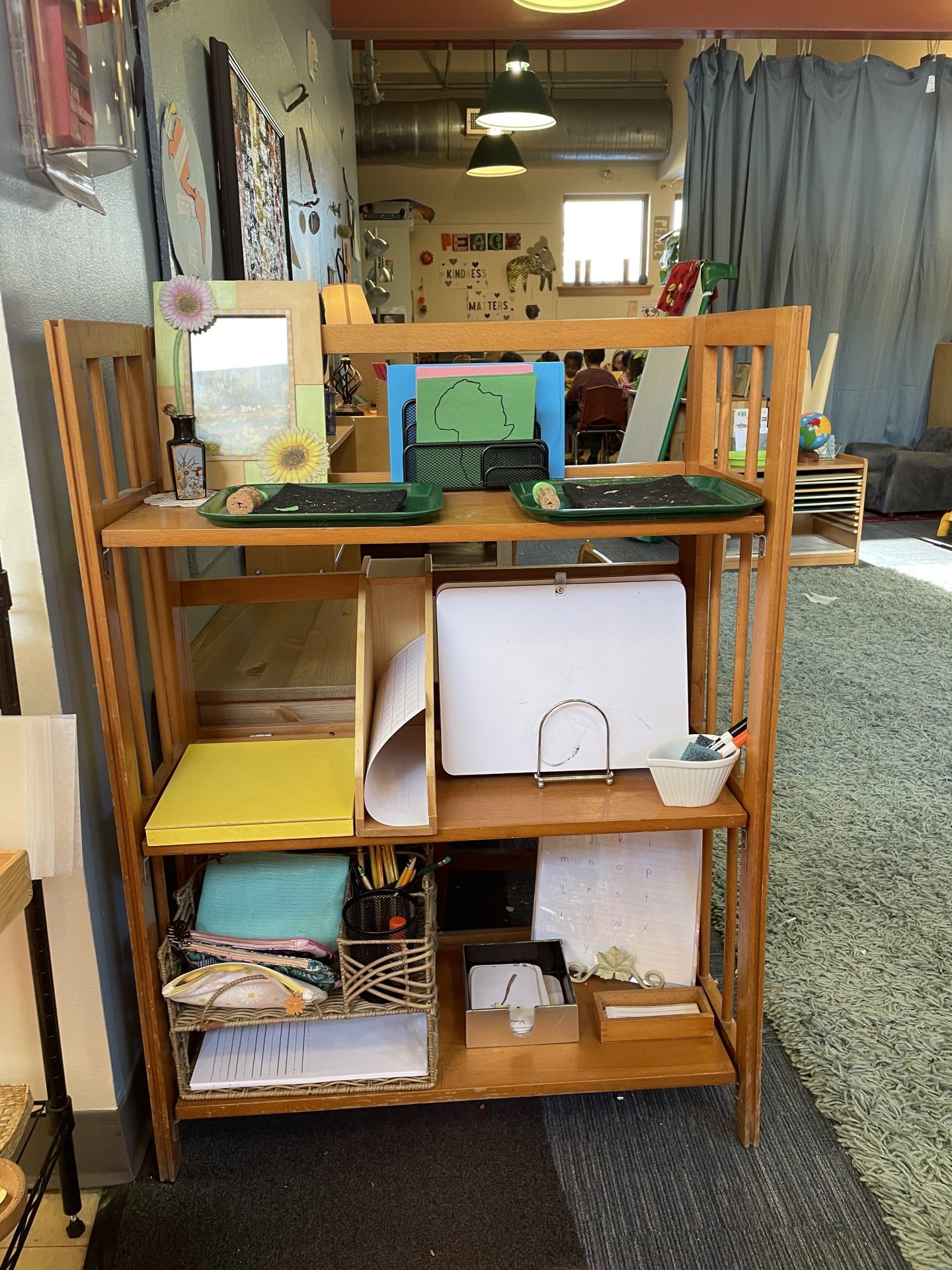
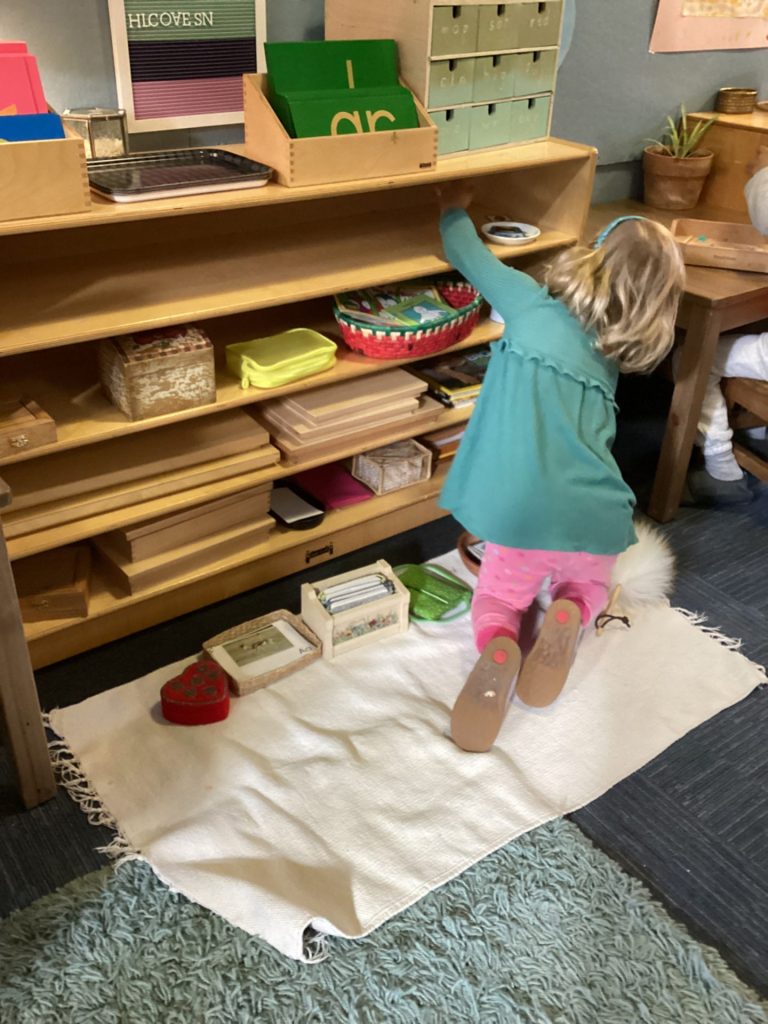
Language has two functions in our environment, it facilitates thought and promotes social life. Our work in spoken language and how we model communication help your child integrate into our community. As adults in the classroom environment, we support them to do this in the way we speak and listen to children. When taking time to speak with children, we show them they are valuable to us and the community, we help them to accept us, and we make them feel acknowledged. Your child develops the concept of themself as a storyteller when we validate and encourage their speech and communication. In our classroom, we also use Grace and Courtesy lessons to help children develop their spoken language skills. Grace and Courtesy lessons are short role-play activities that aid the child in gaining the appropriate language for communicating in our community. For instance, how to ask for help, how to introduce yourself, how to ask for space, etc. These are all essential elements in building self-confidence, confidence in us, and confidence in their community.
A major part of our work in spoken language is in vocabulary enrichment and language training. Beyond the language we give them through our speech, stories, songs, and poems, we provide the child names of familiar objects after repeated exposure in our environment. For instance, we might take out a pitcher and name all the parts- spout, handle, sides, base. This language would be introduced through a Three-Period Lesson. The First Period is when new vocabulary is introduced, the Second Period is when we play games that require the child to repeatedly associate the word with the object, and the Third Period is when the child correctly names the object. We also use language cards, sometimes called Classified Cards, to teach the children the names of familiar objects, animals, plants, and places. We play games with these cards to make memorization fun. Later in their time with us, they will read and label these same cards as a reading exercise.
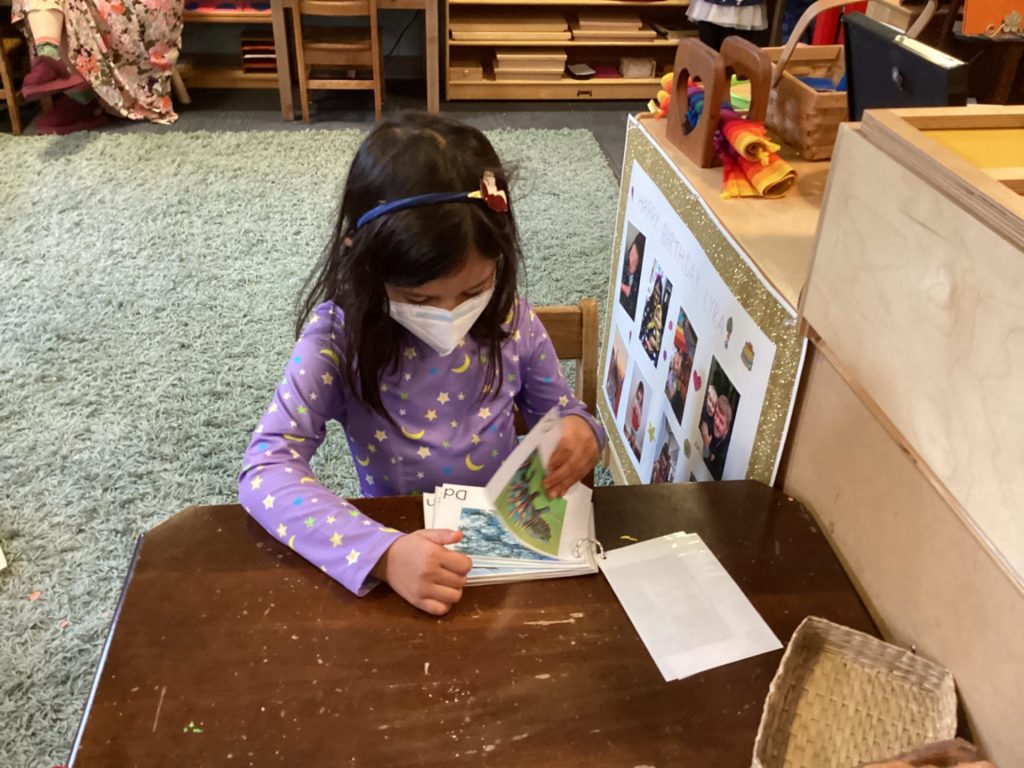
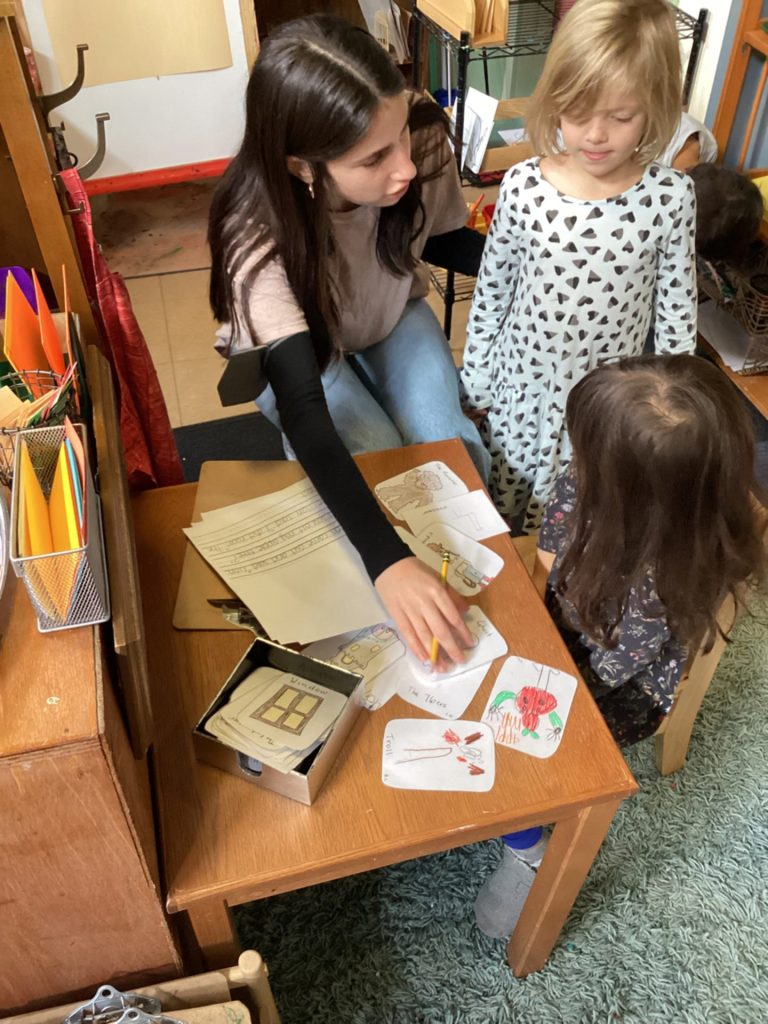
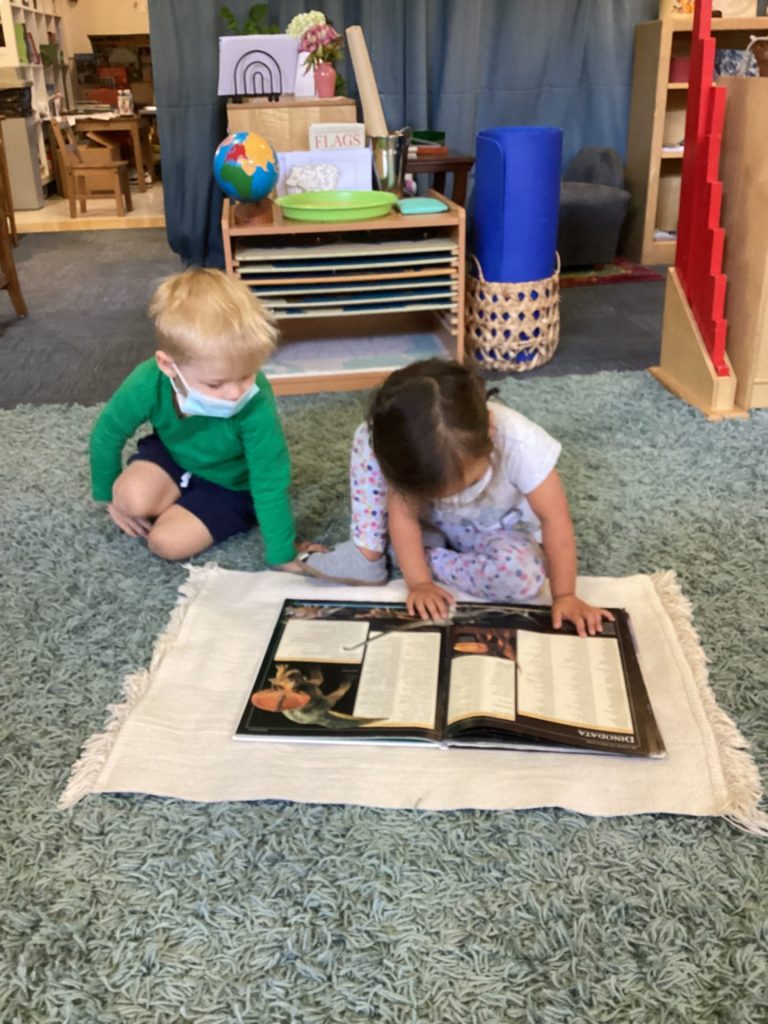
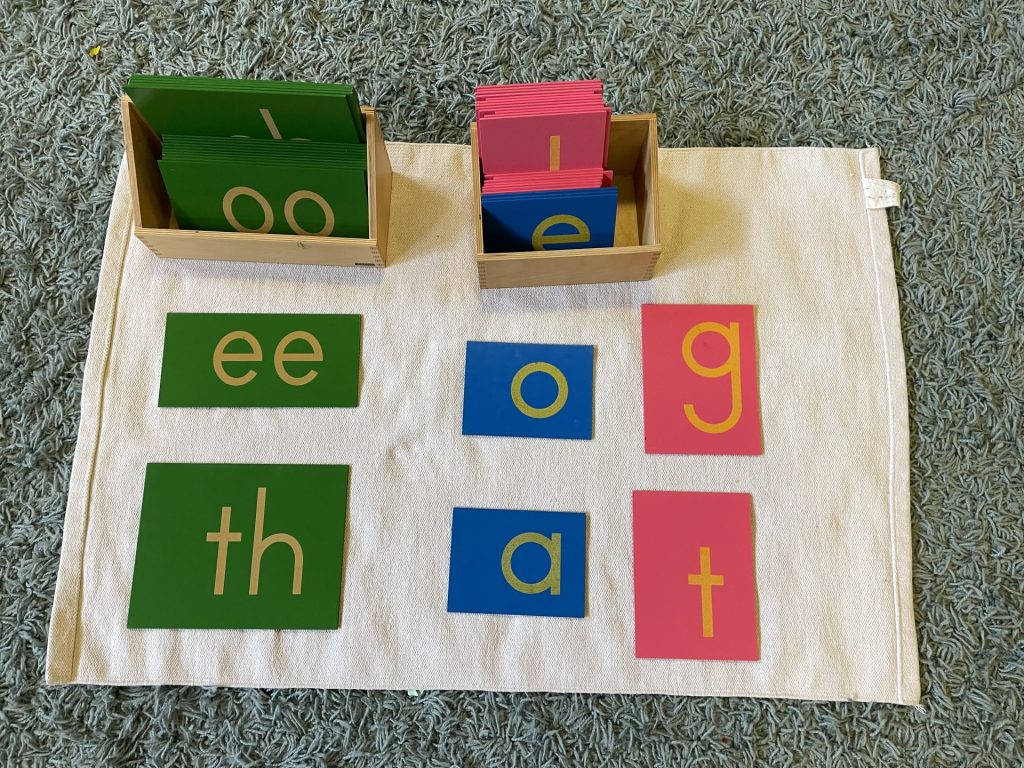
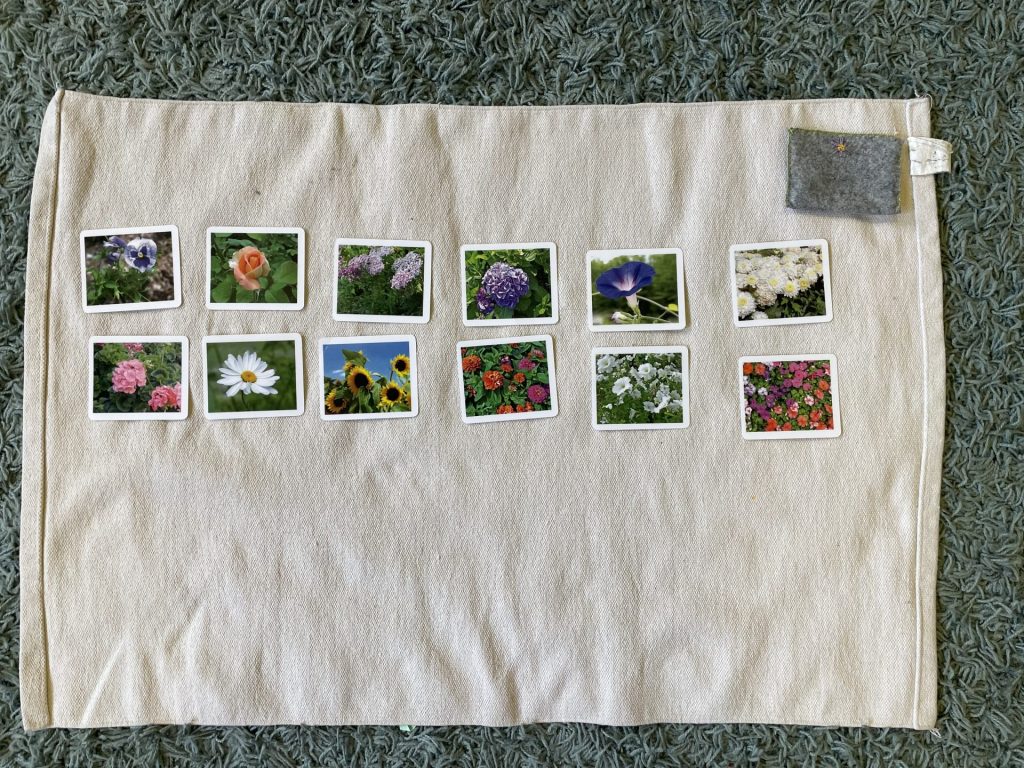
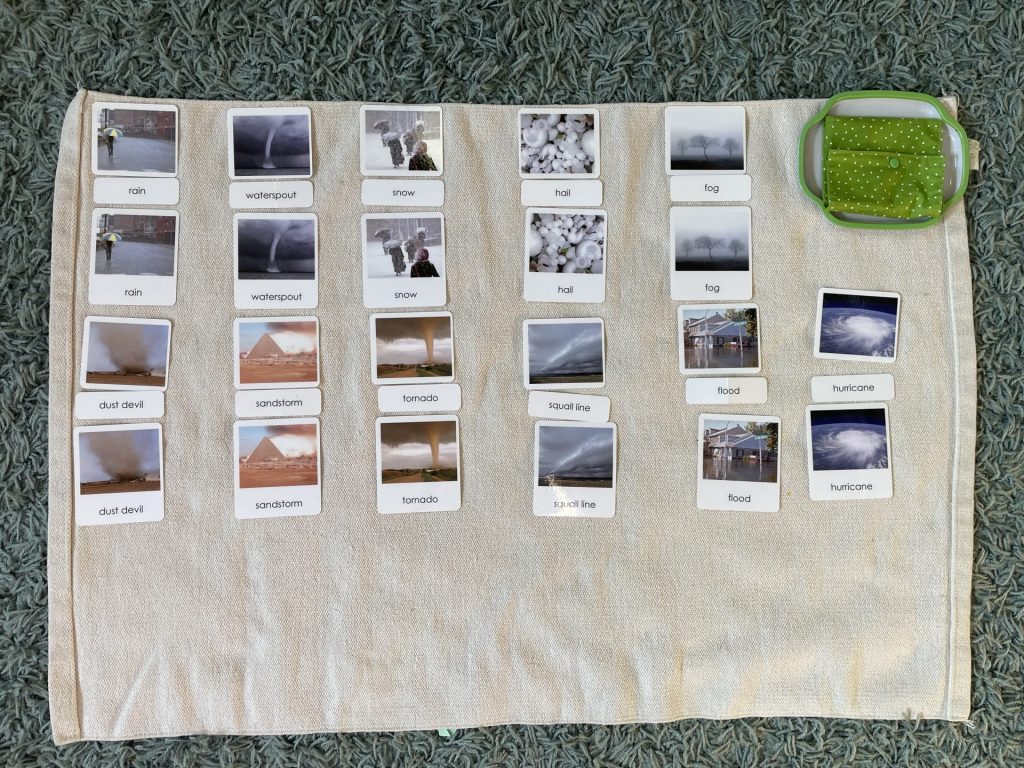
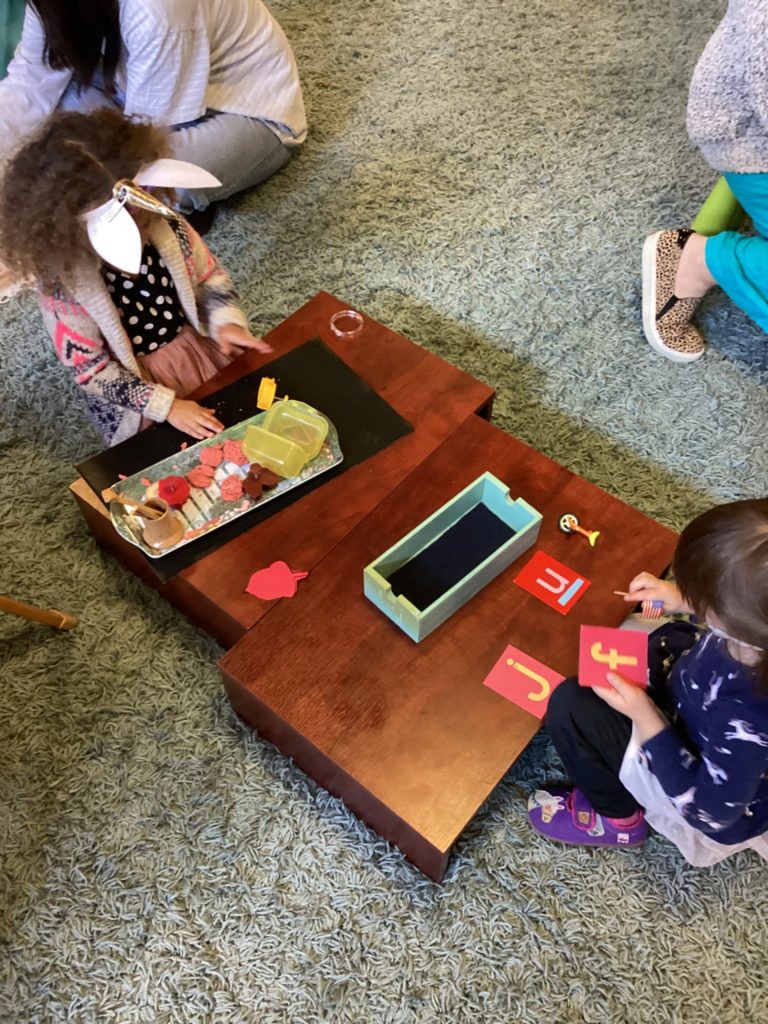
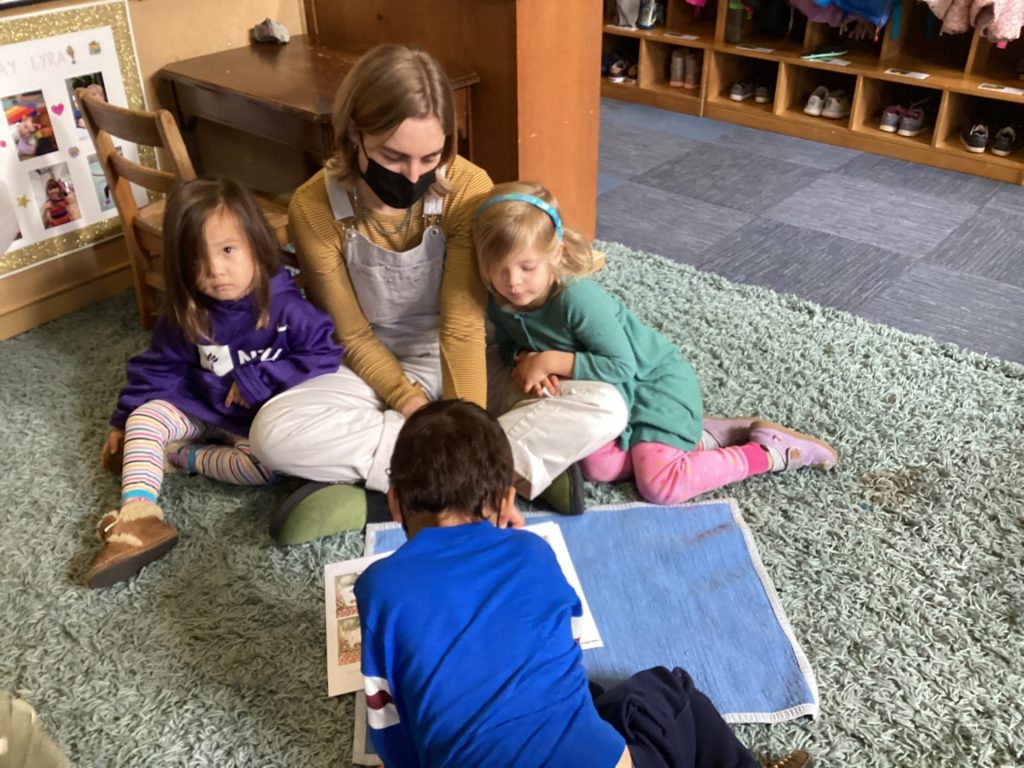
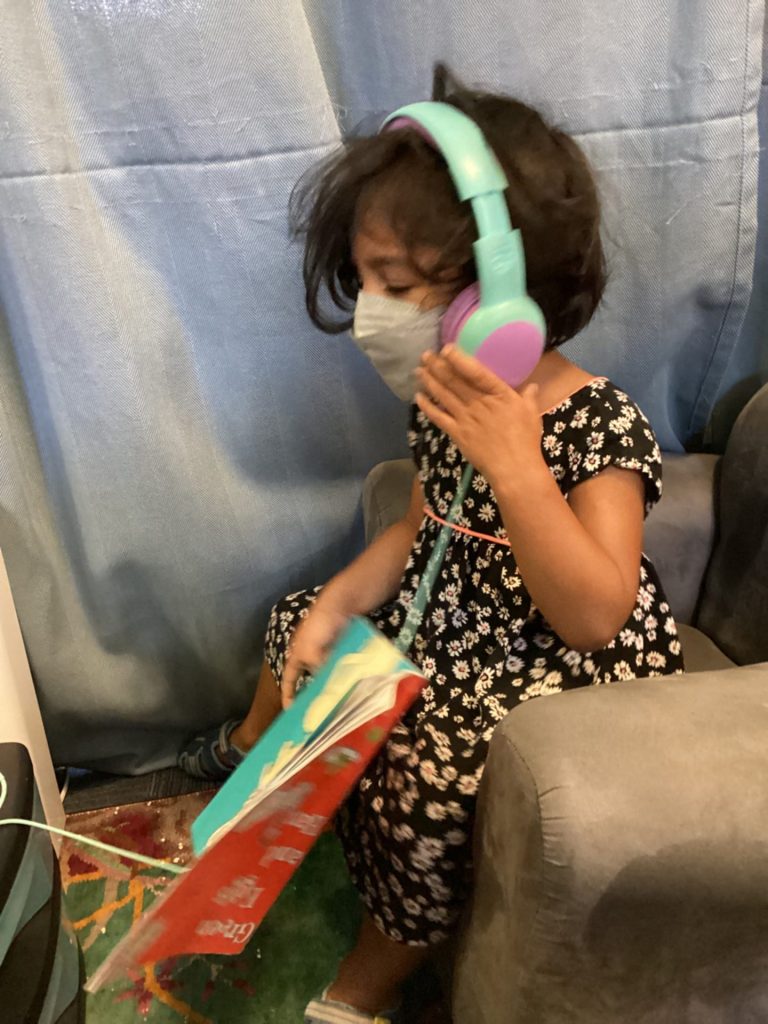
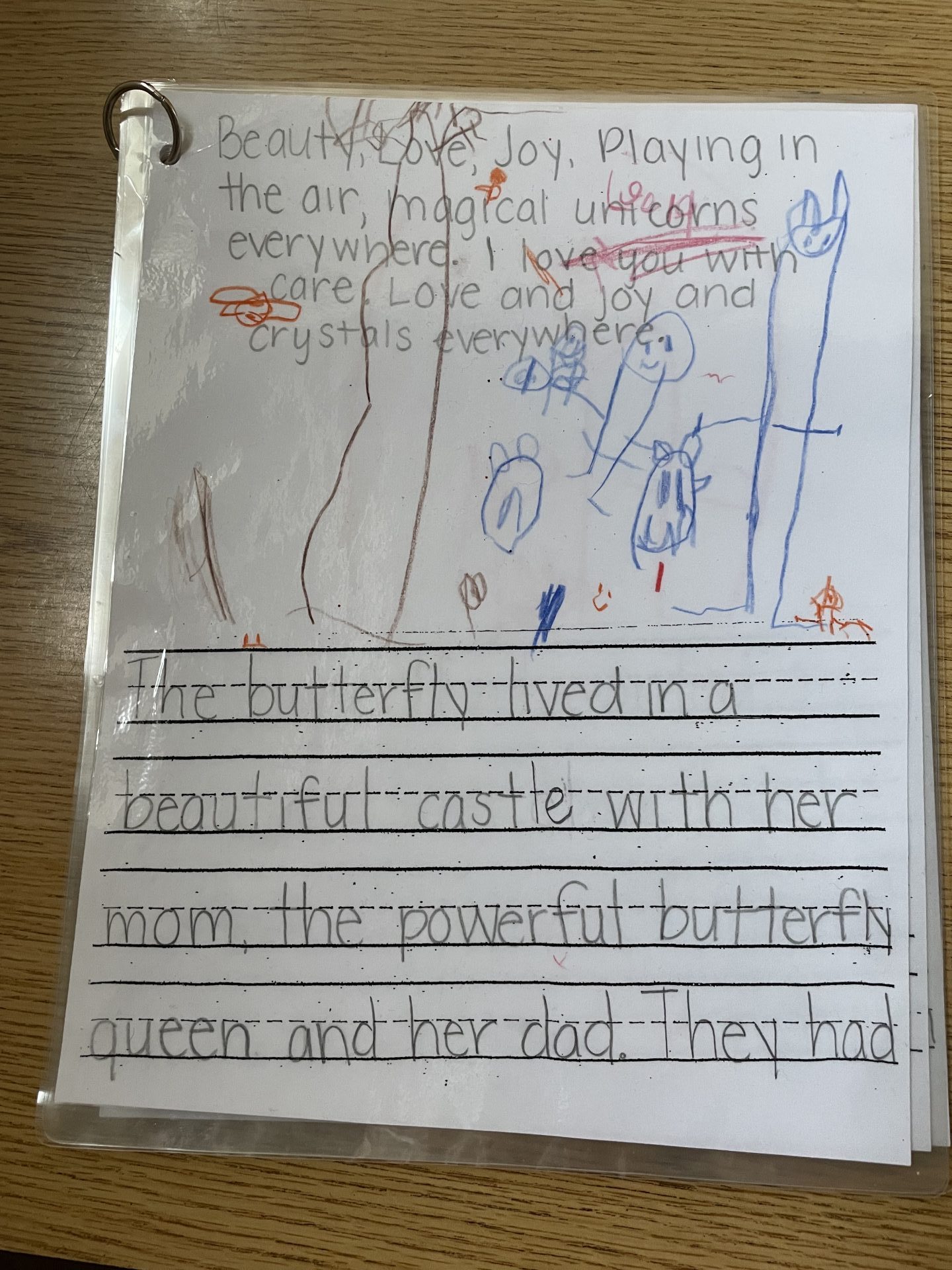
Writing
Written language is another form of communication we rely on in a Primary classroom. In the Montessori method, writing comes before reading. In fact, watching the child’s acquisition of written language helped solidify Dr. Montessori’s commitment to education. “A phenomenon which, more than forty years ago, kindled in me the desire to dedicate my life to education was the spontaneous phenomenon of the ‘explosion of writing’ in children of four years of age.” (Maria Montessori, The Formation of Man) Dr. Montessori discovered that writing came easily to the child of four, something that was previously thought impossible. She observed that the process of writing was simpler than that of reading. To write, the child only needs to deconstruct known words, analyze the sounds, and put them together to form a word. By contrast, when reading, the child must deconstruct the word, analyze the sounds, reconstruct the word, and then search for the meaning- which is potentially unknown. Not to mention, how many words in English do not look the way they sound! All the work your child does writing, only further prepares them for reading.
Before they begin to write, there are two preparations your child must tackle- the preparation of the hand and the mind.
“The hand is a kind of living machine, the movements of which have to be prepared so that they may render service to the intelligence.”
Maria Montessori, The Formation of Man
Preparation of the hand takes place from the very beginning in a Primary classroom, through the use of the Practical Life and Sensorial materials. All the work your child is doing with tongs, scissors, spreaders, etc. helps to build your child’s muscles, fine motor skills, and wrist flexibility which in turn supports them on their journey to writing.
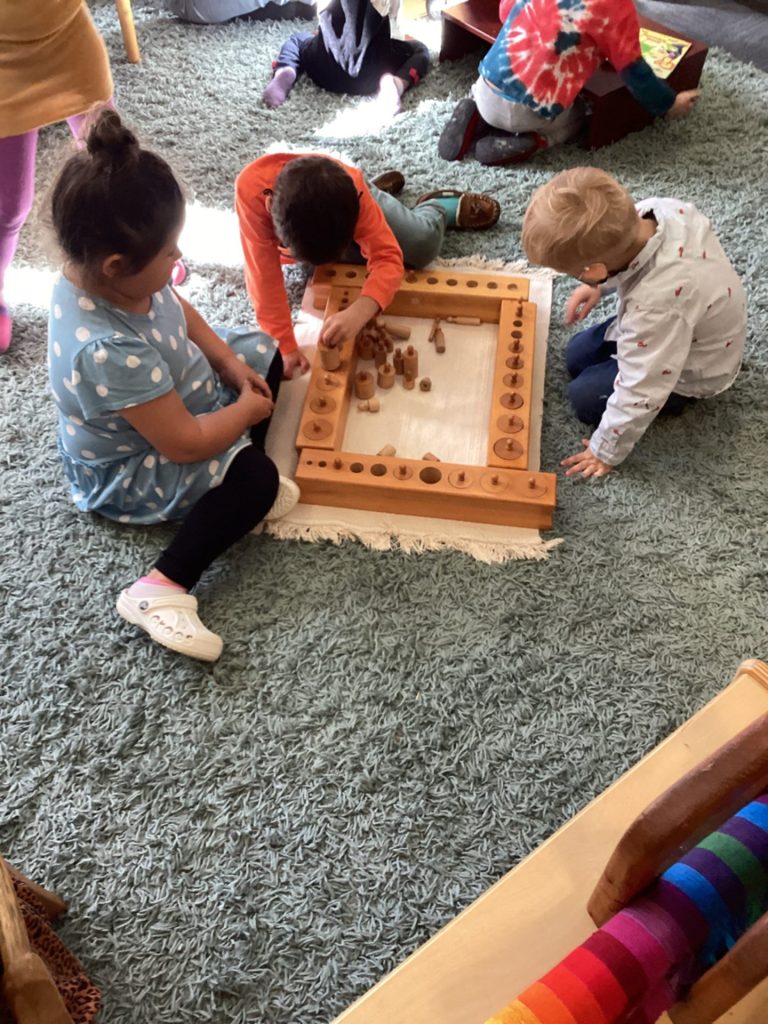
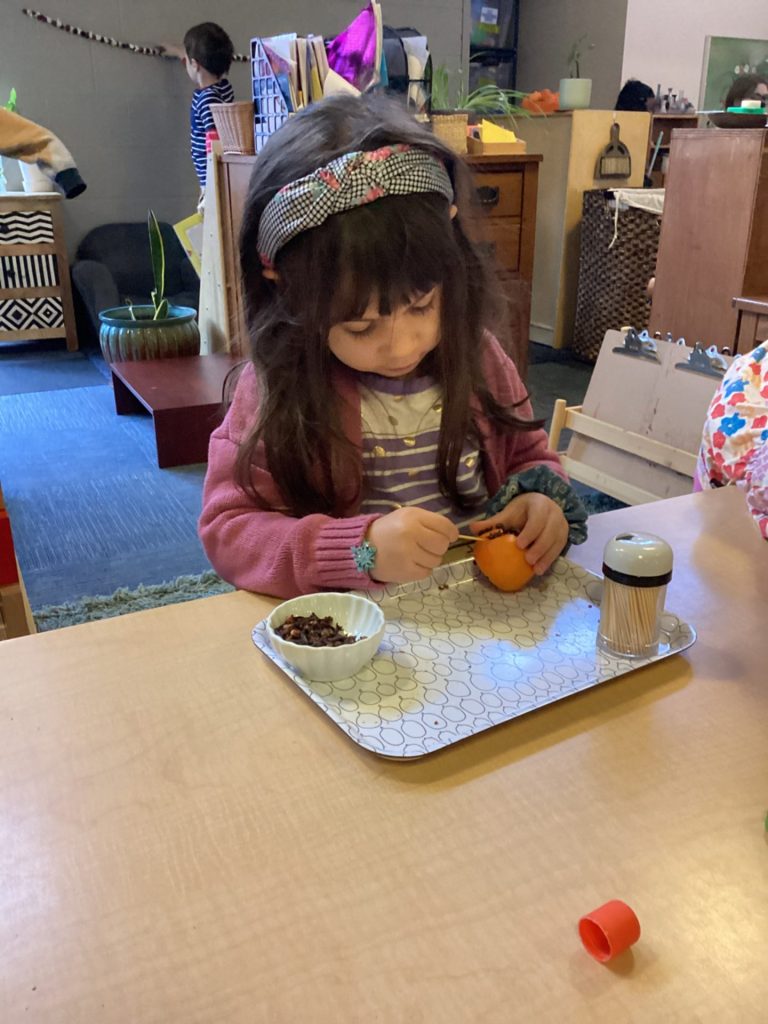
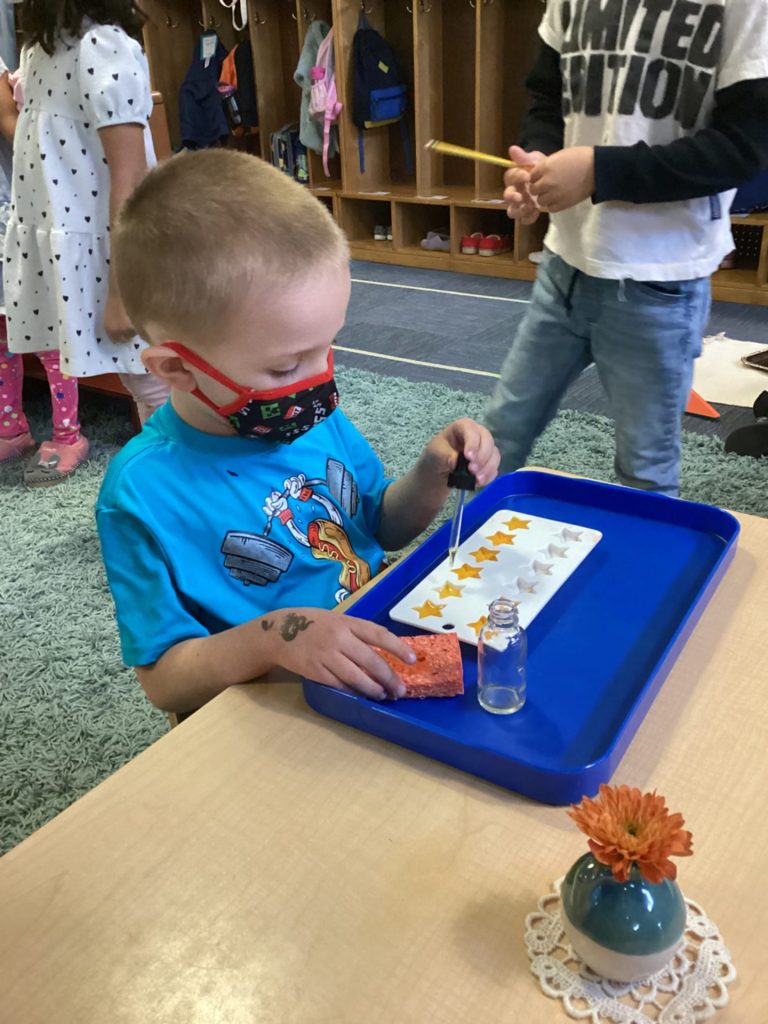
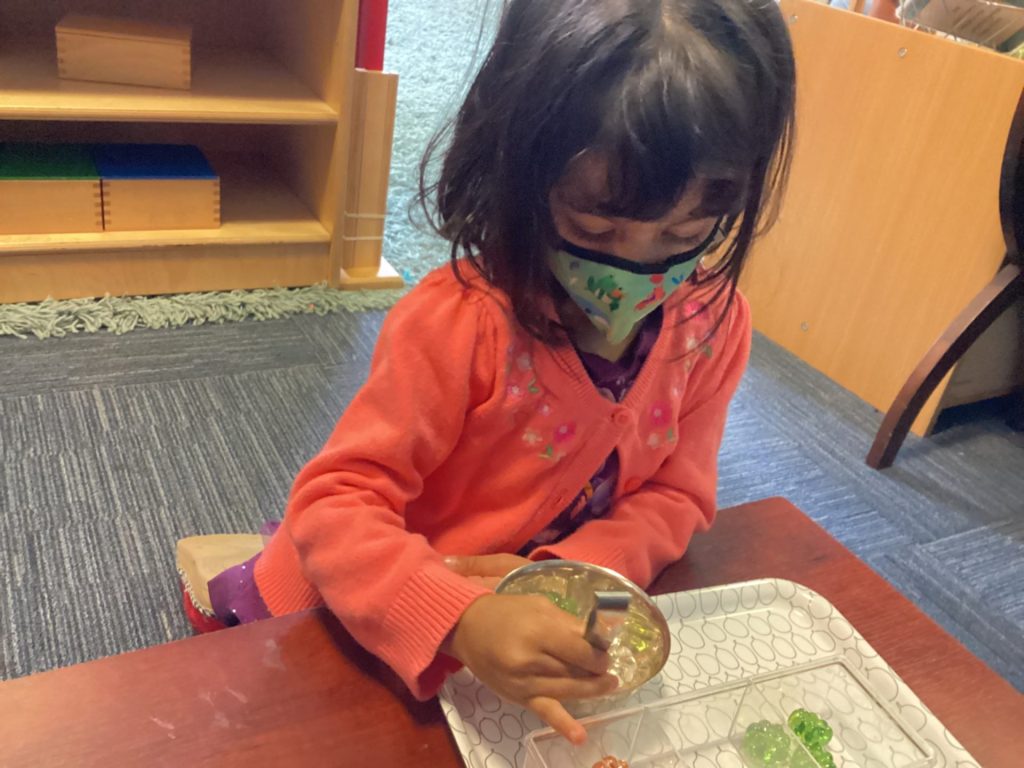
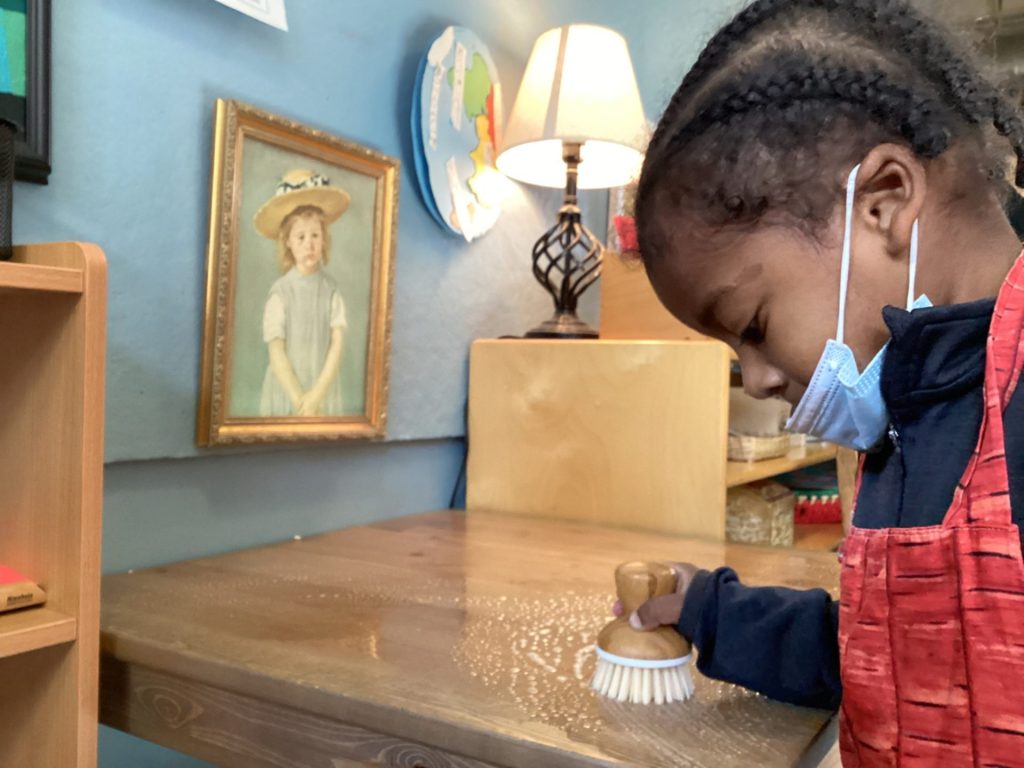
We also offer the children experiences with the Sandpaper Letters, the Sand Tray, the Chalkboards, the Metal Insets, Pin Punching, and successive stages of writing on paper- first one letter at a time, then one word, then whole sentences.
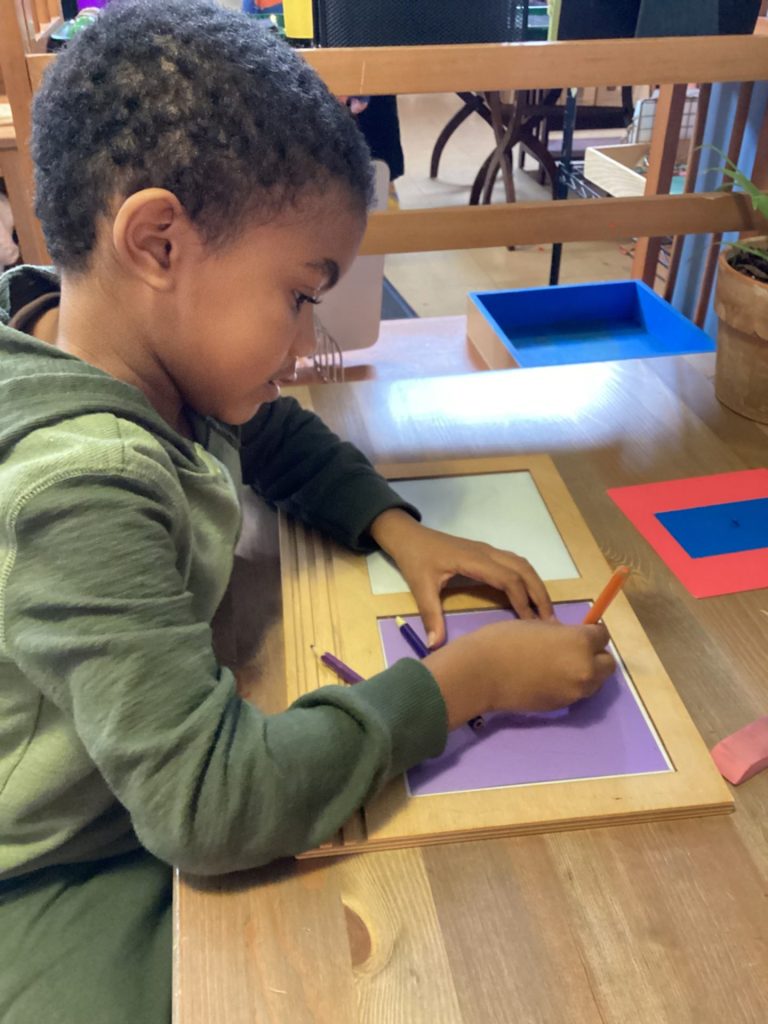
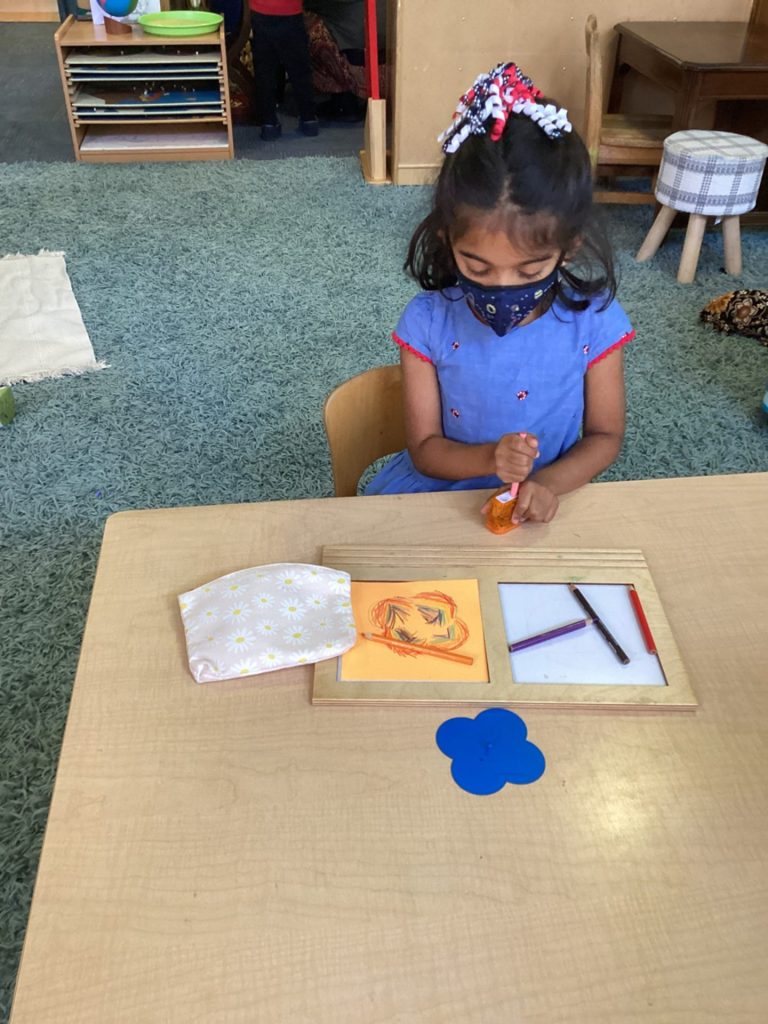
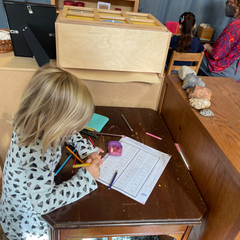
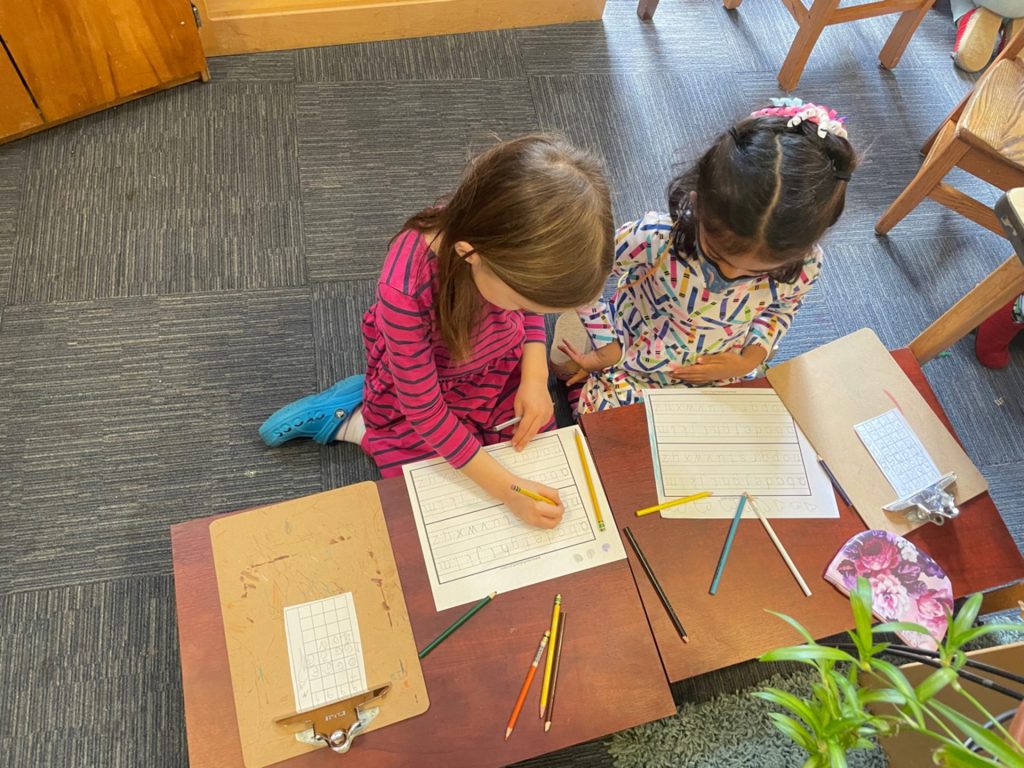
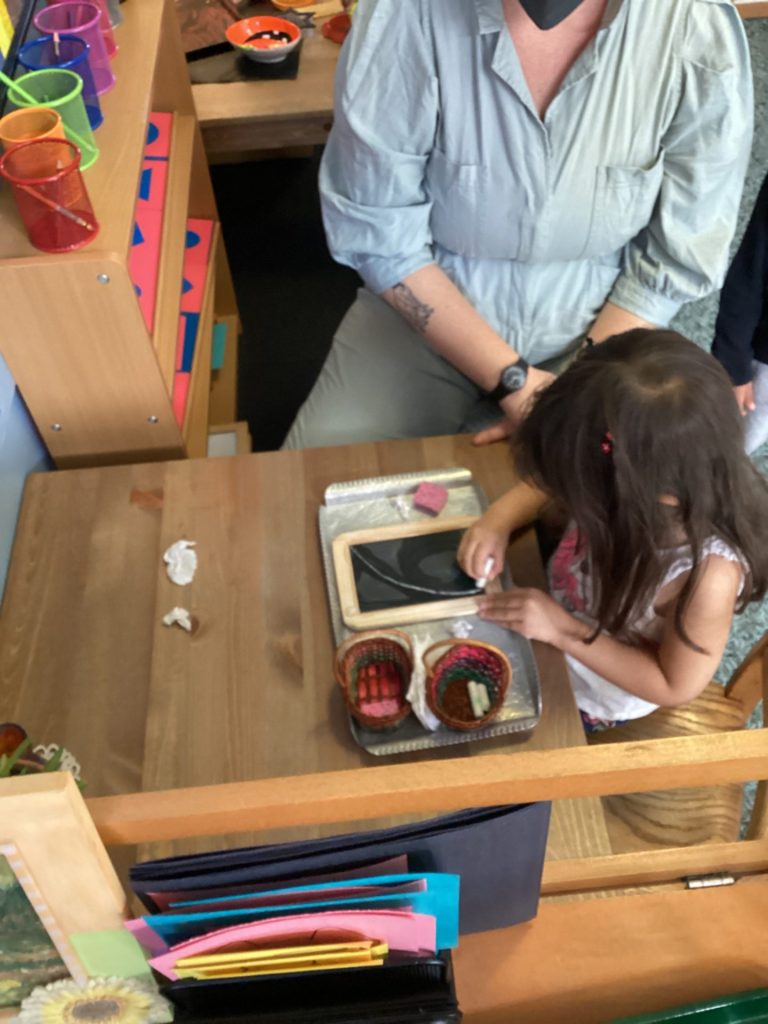
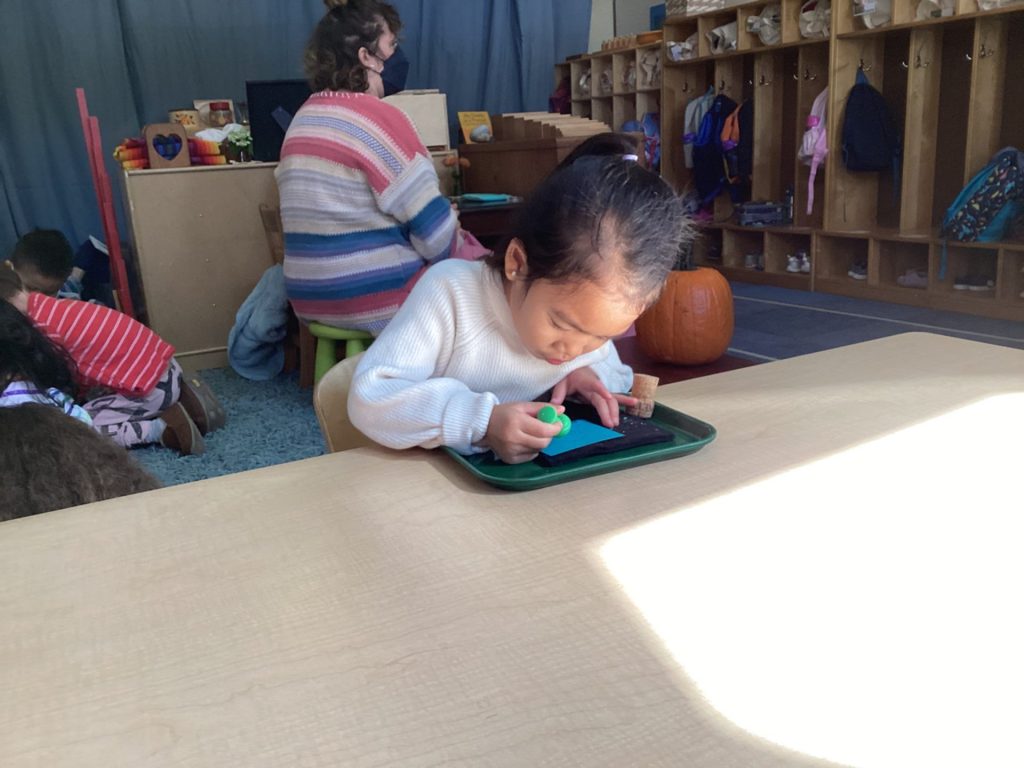
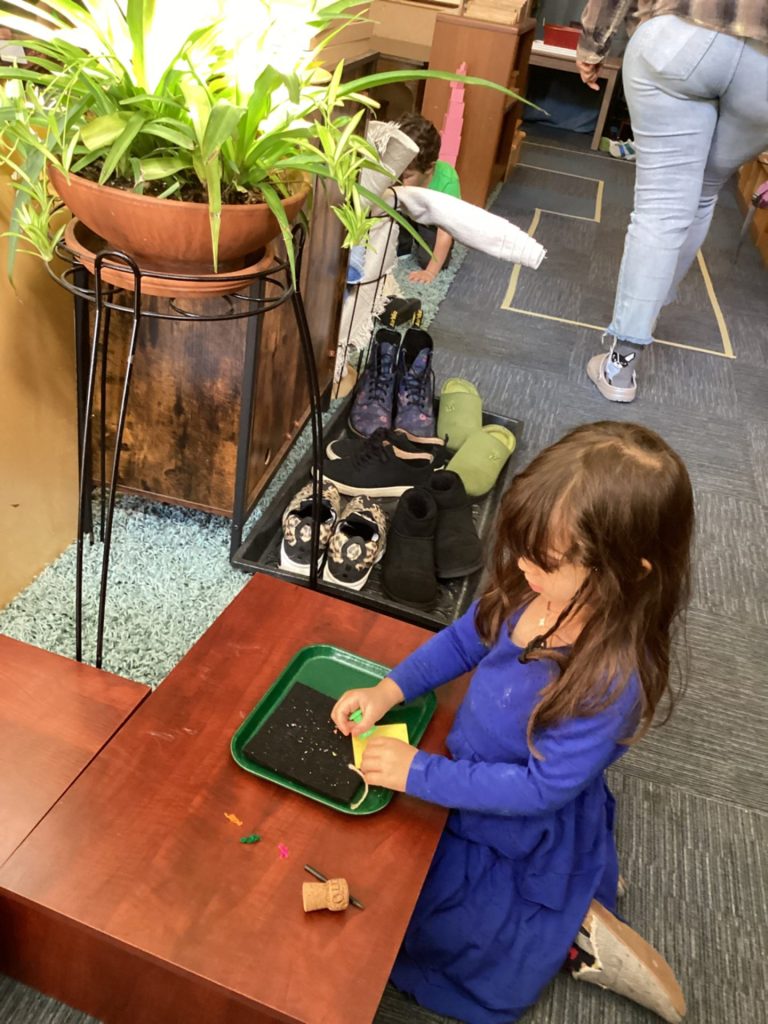
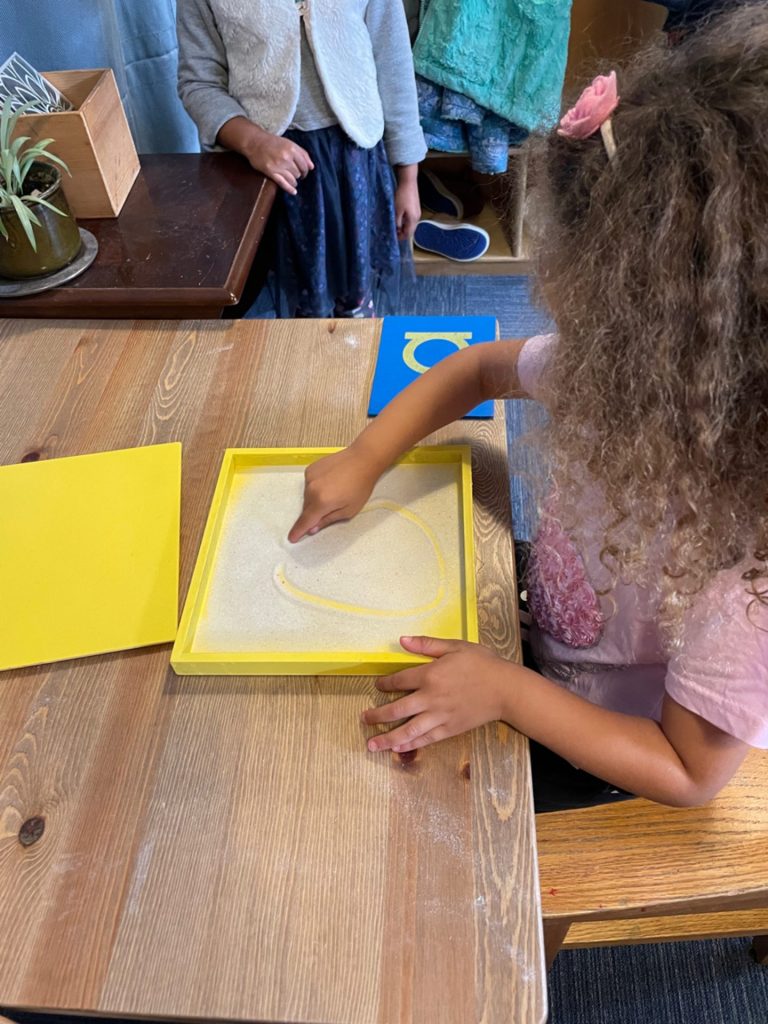
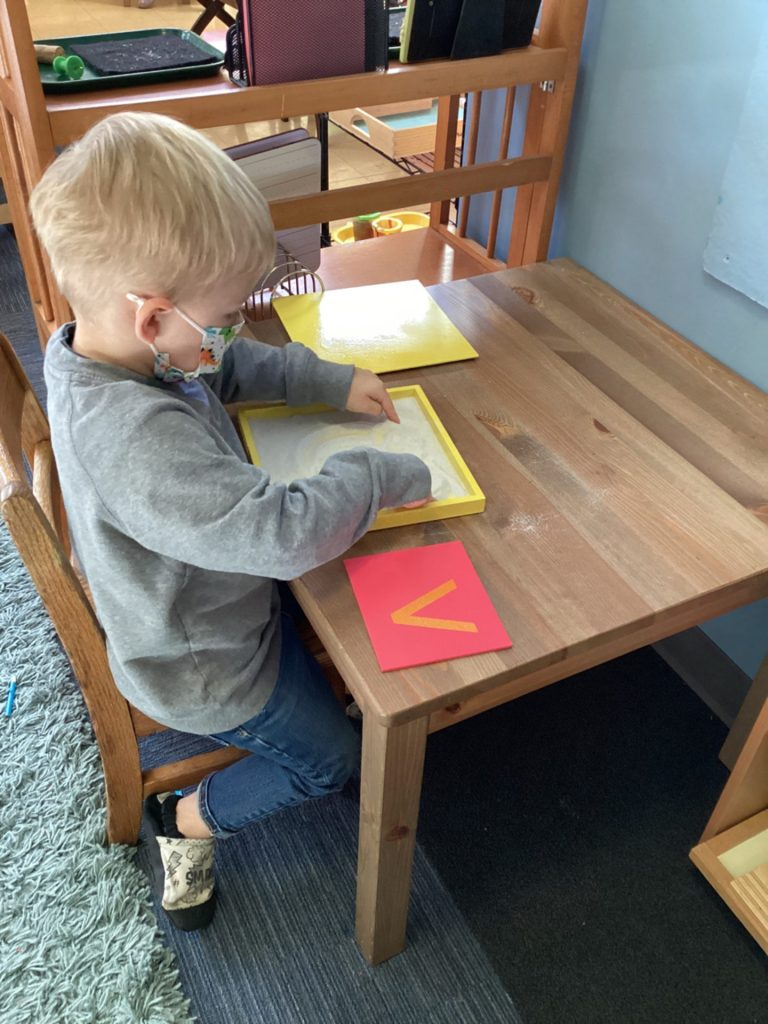
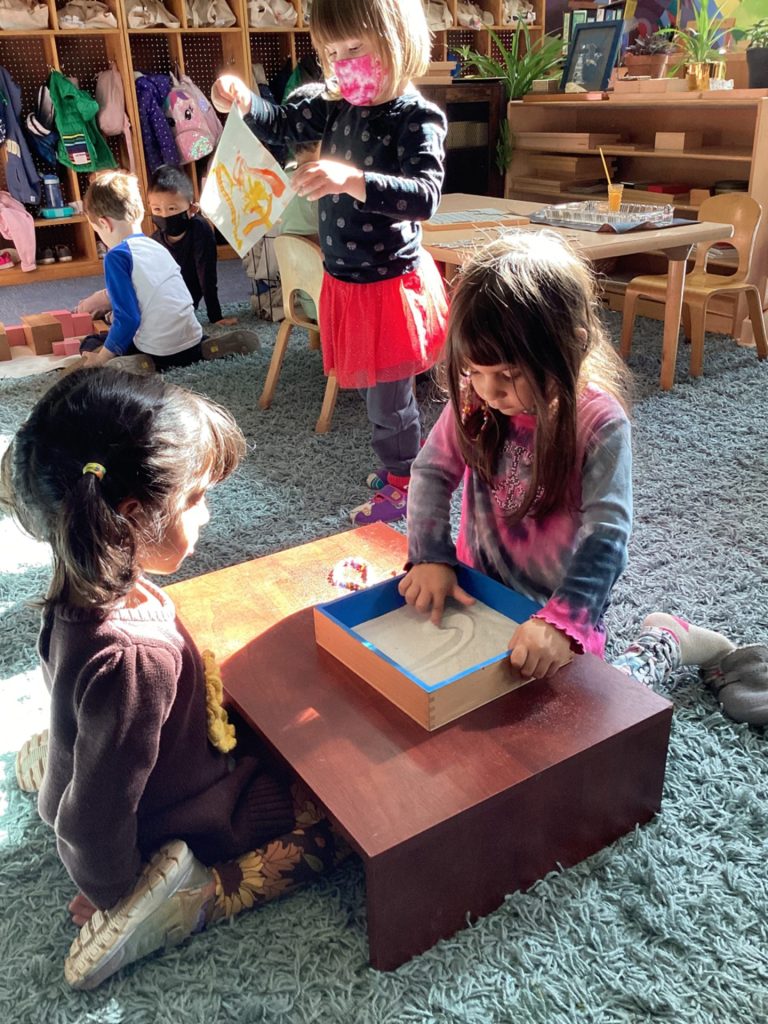
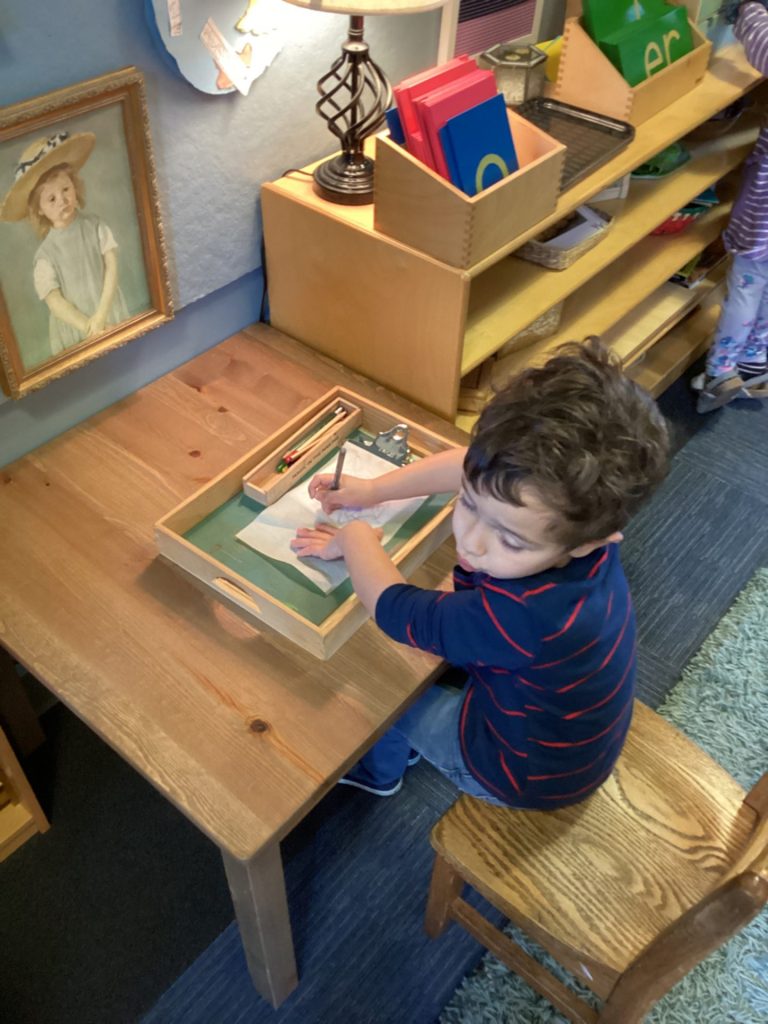
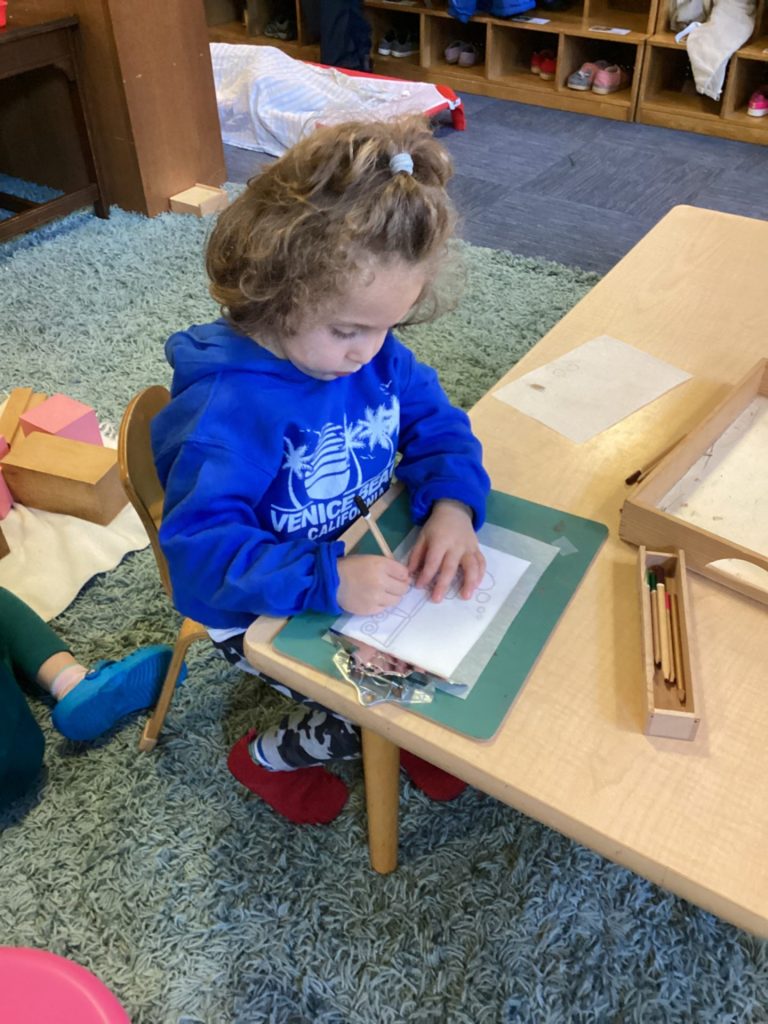
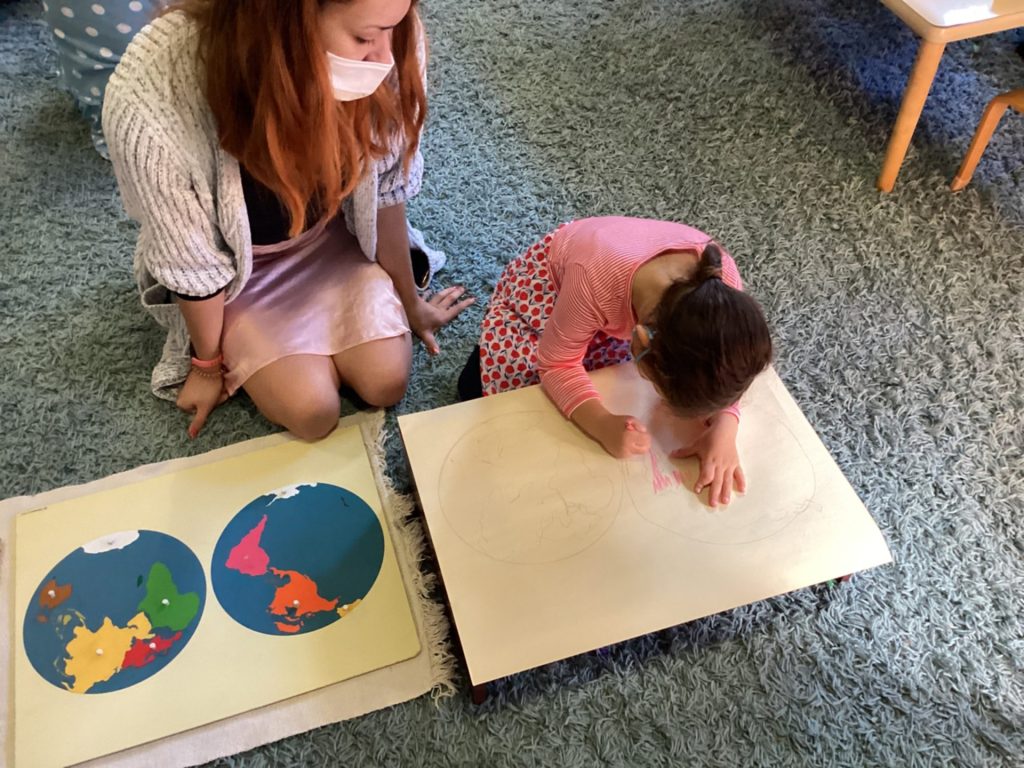
The preparation of the mind starts with all the Spoken Language work. All the vocabulary we offer becomes fodder for their writing and all the opportunities to share their thoughts has given them an impression of themselves as storytellers. After extensive work with the Sandpaper Letters, your child will begin to consistently associate the symbols (letters) with their sounds. When they have mastered most of them, they will receive a lesson on the Movable Alphabet. The Movable Alphabet is a collection of wooden red consonants and blue vowels that can be combined to build words on a mat. This material frees the mind from the constraints of the hand- meaning that even a child who is not yet ready to write letters on paper, can write a story, an animal report, a list, etc. When your child is working with this material, we are not yet concerned about spelling. We ask the child to break words down into sounds and identify the sounds they hear. The work is intended to further their sound-to-symbol awareness and spark their love of writing and self-expression. Because English is not a phonetic language, many words are not spelled the way they sound so at this stage we do not worry about spelling. If we stopped to correct their spelling at every turn, it would likely lead the child to feel discouraged and less likely to repeat this work. With the Movable Alphabet our main aim is to foster a love of letters, writing, and self-expression. Spelling is introduced later.
“Exercises with the alphabet give him exalting emotions because during the period of development of language there is in him a living flame that burns in an effort at creation.”
Maria Montessori, The Formation of Man
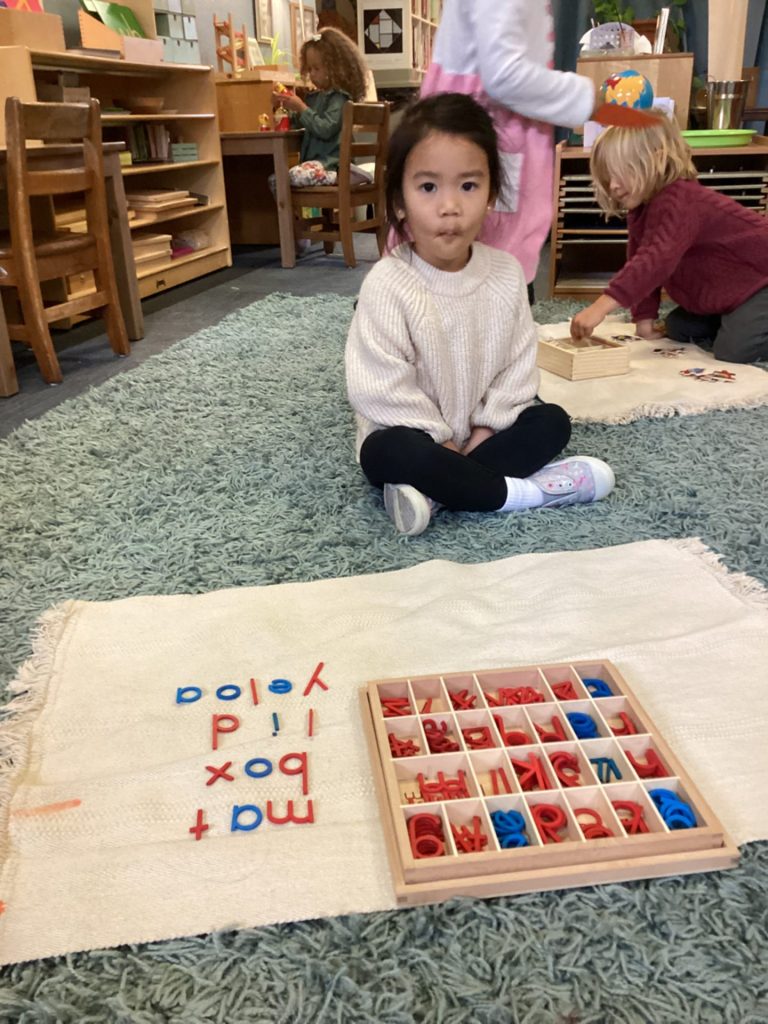
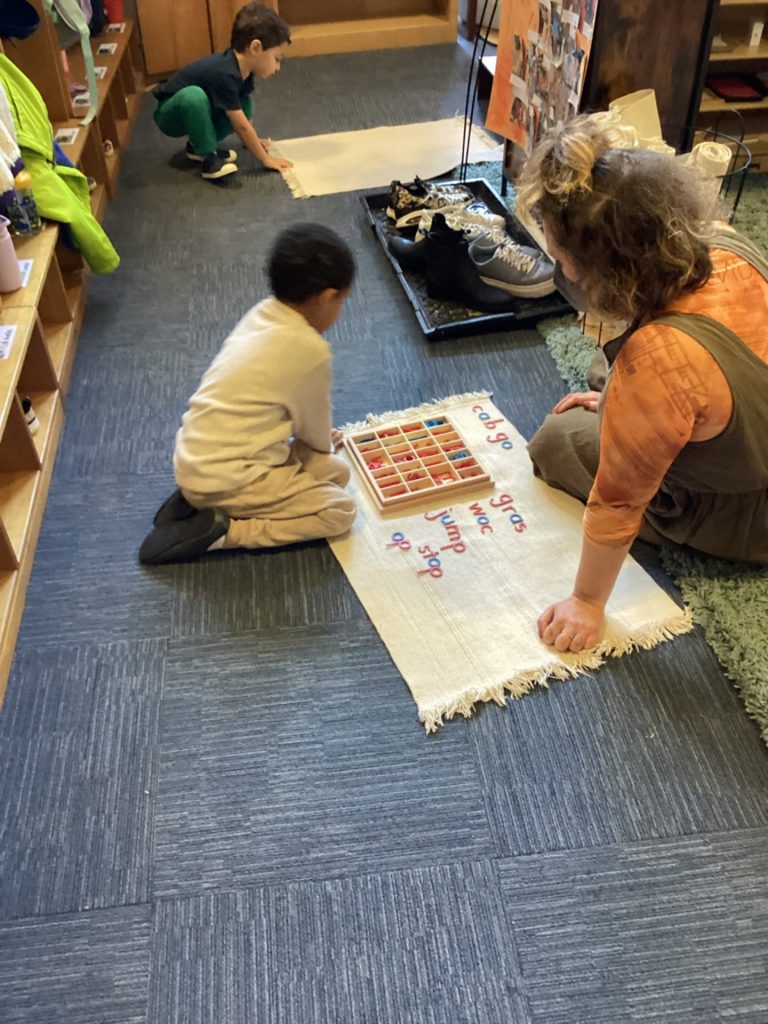
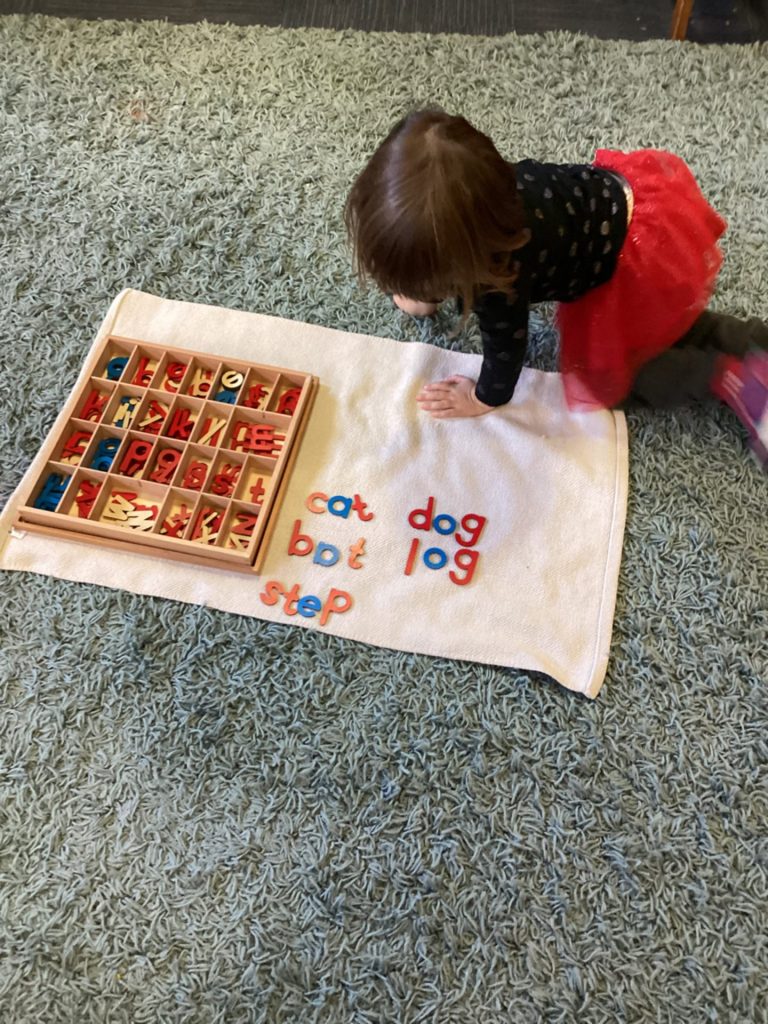
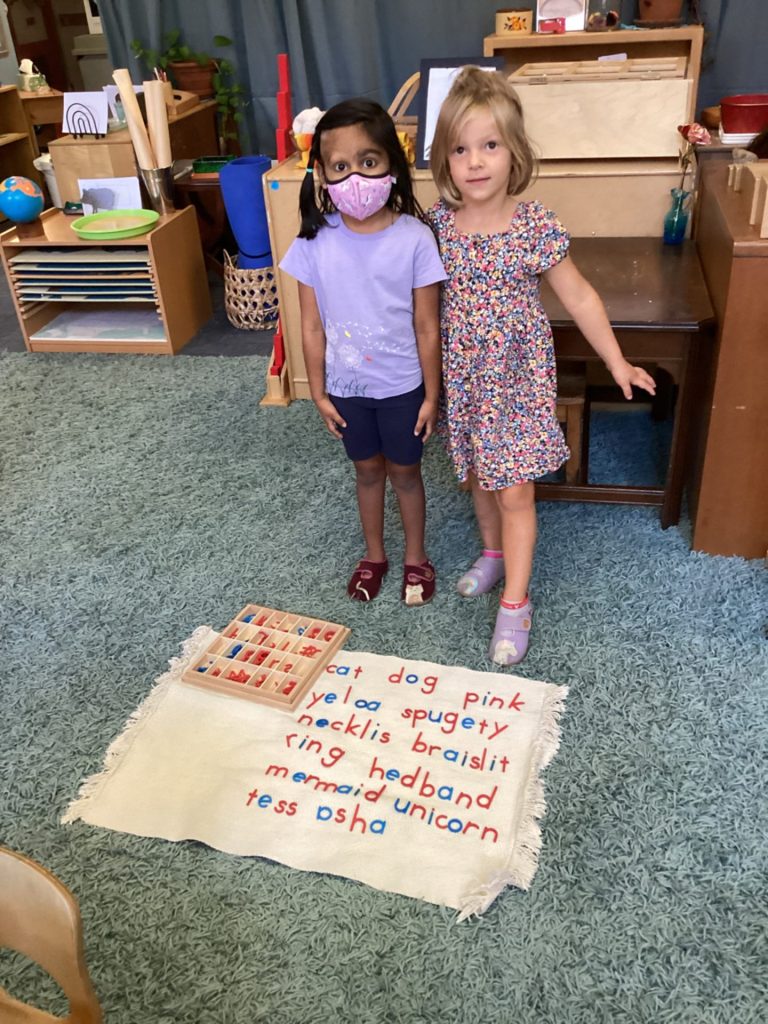
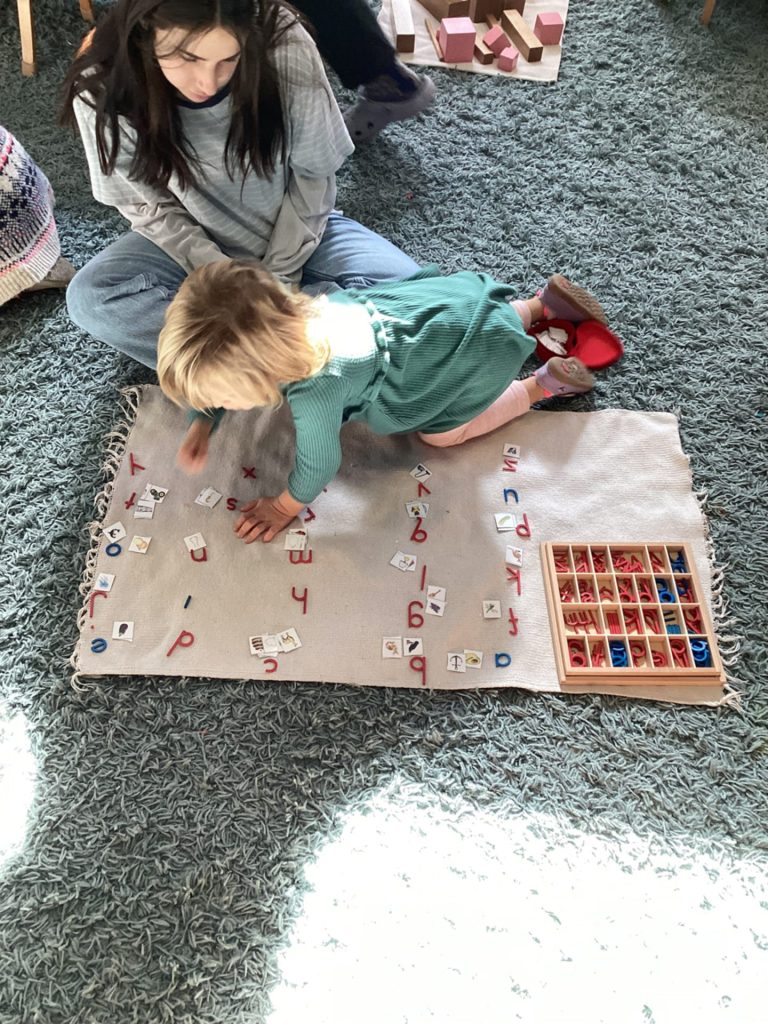
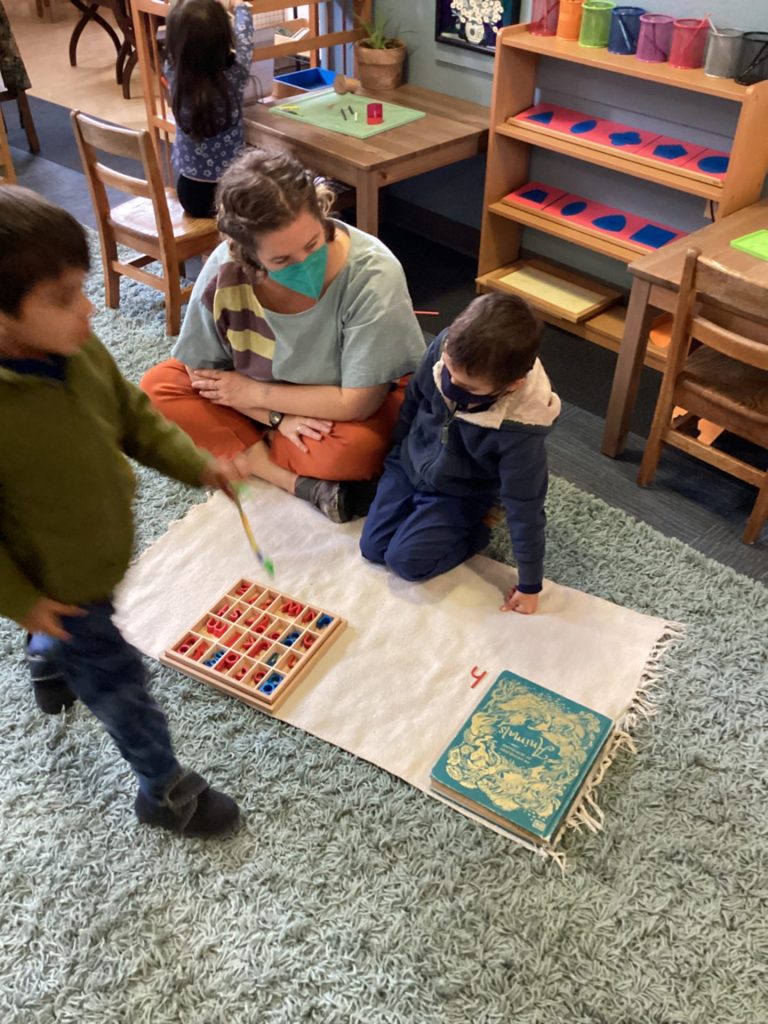
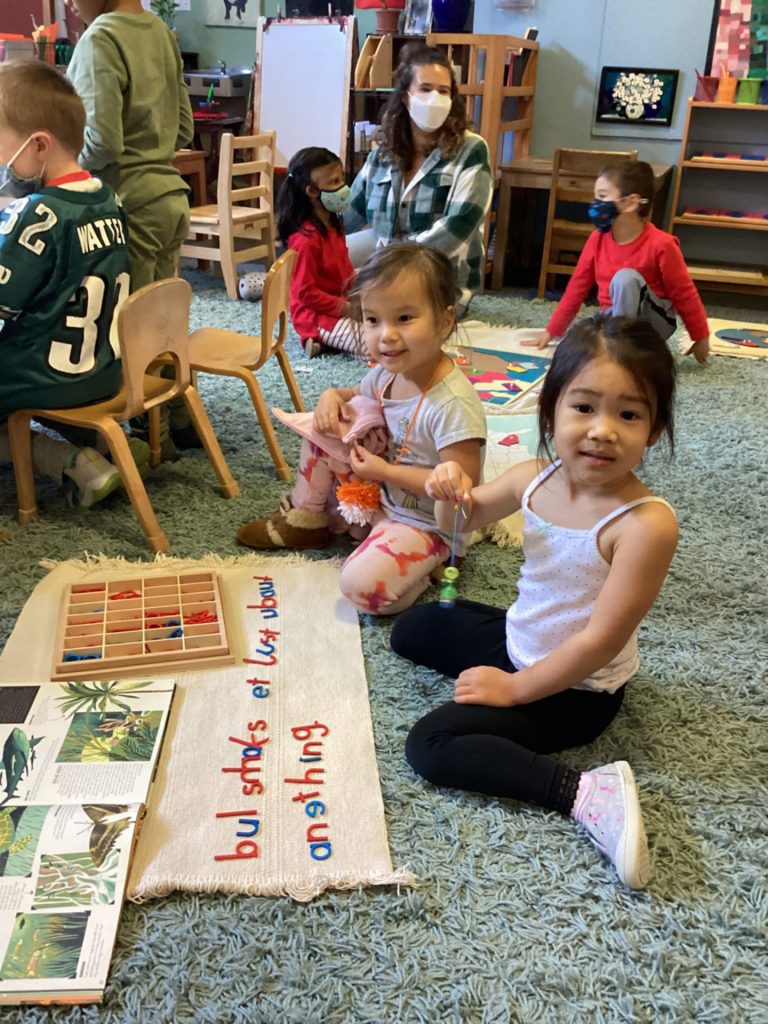
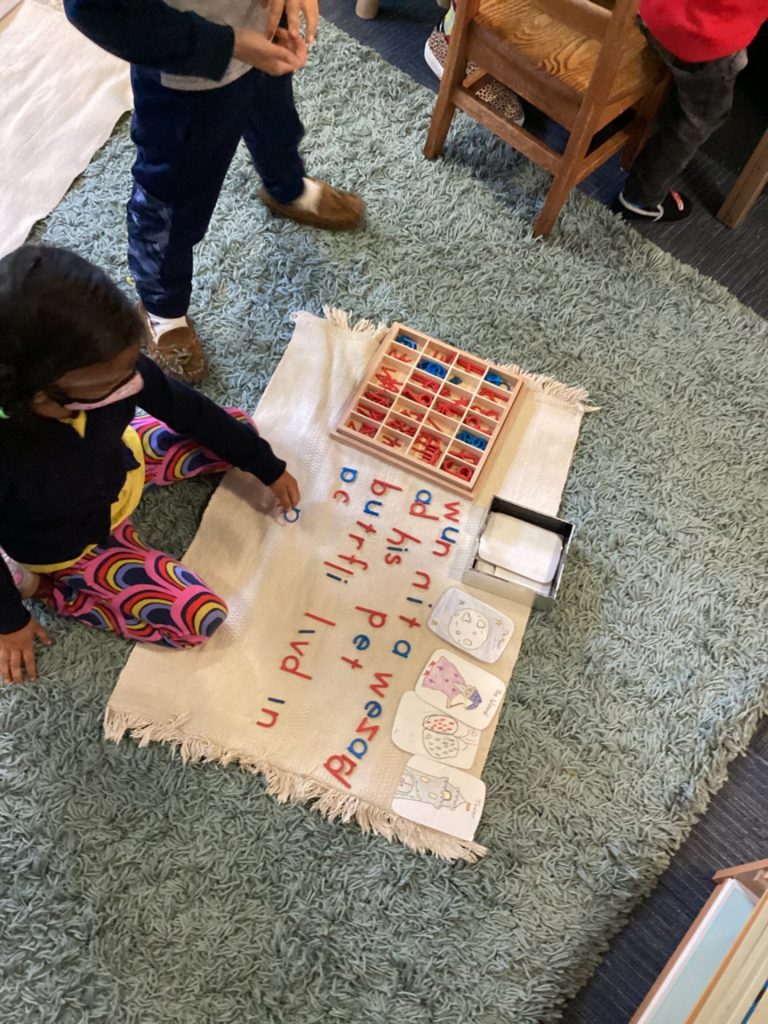
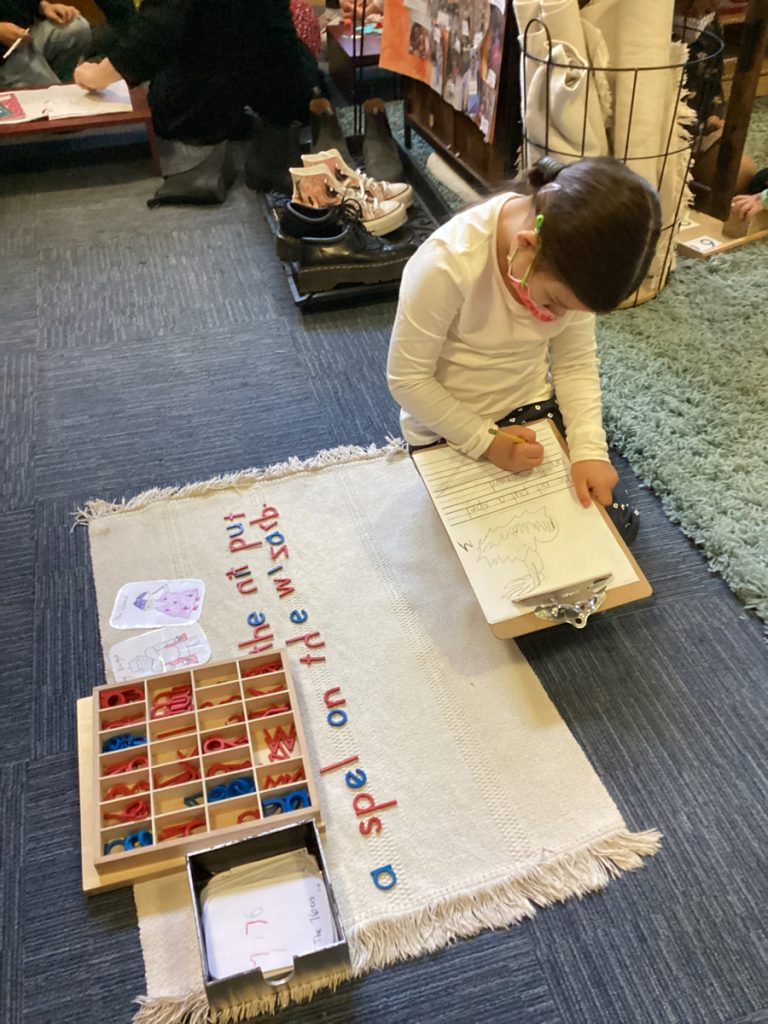
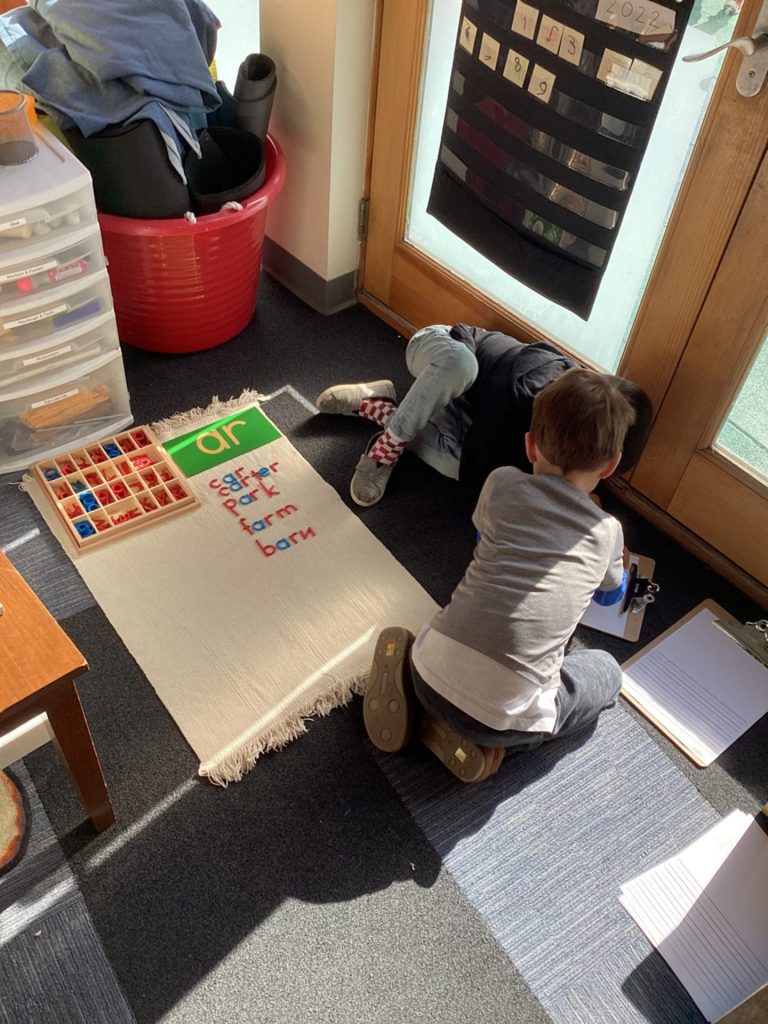
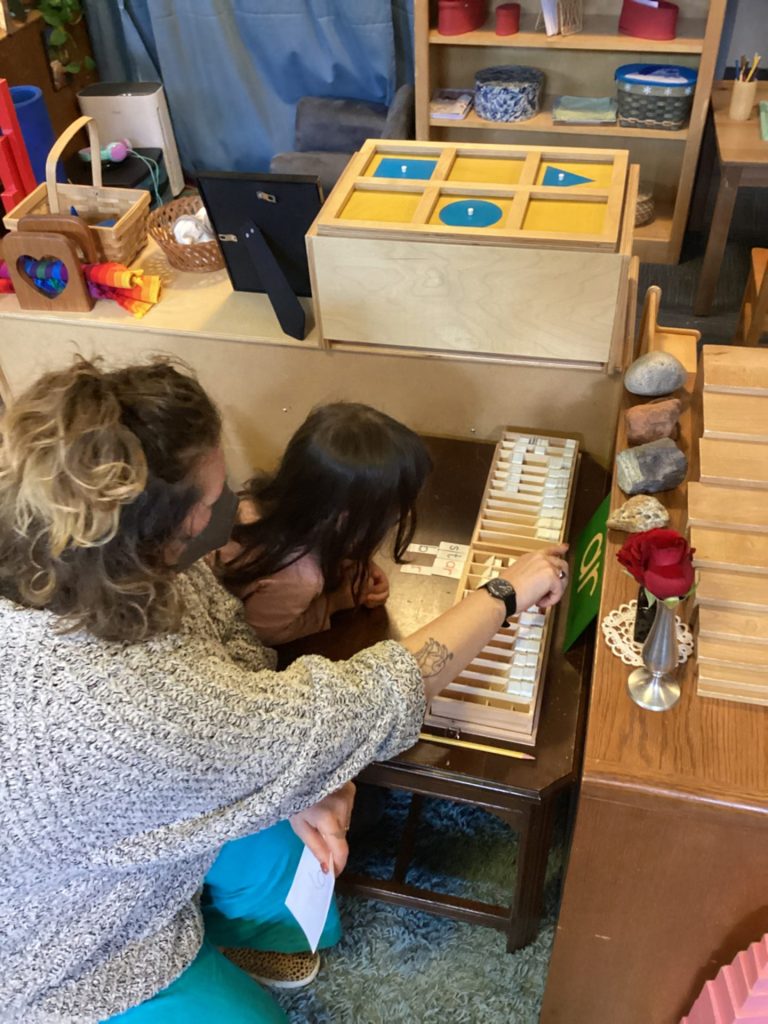
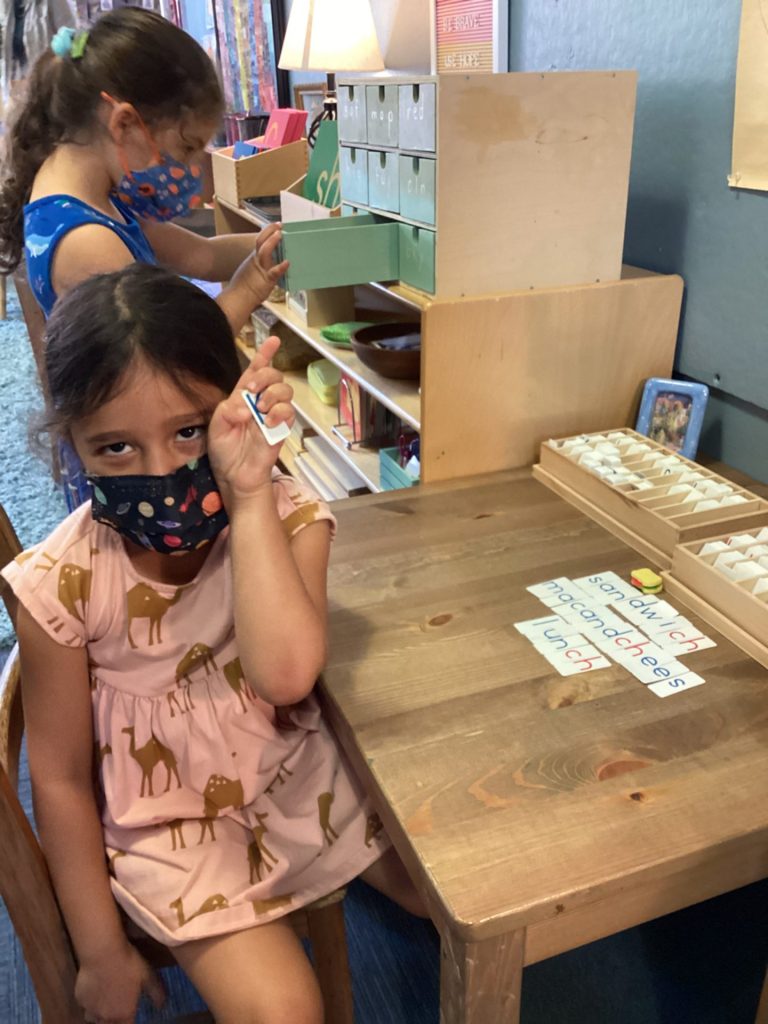
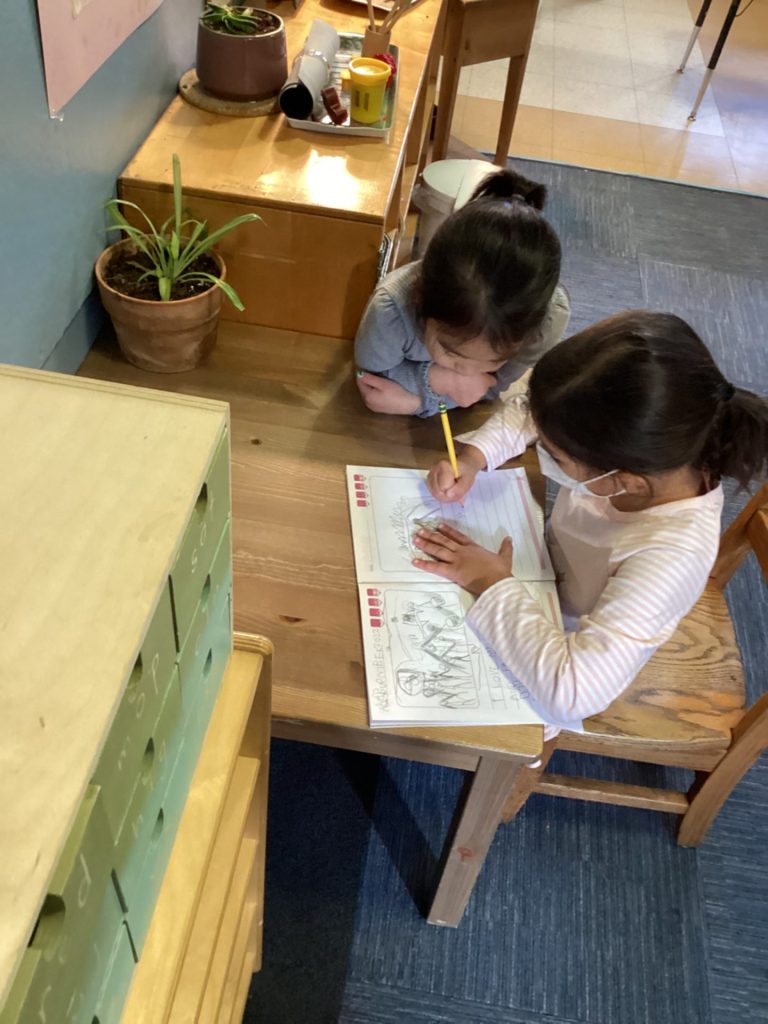
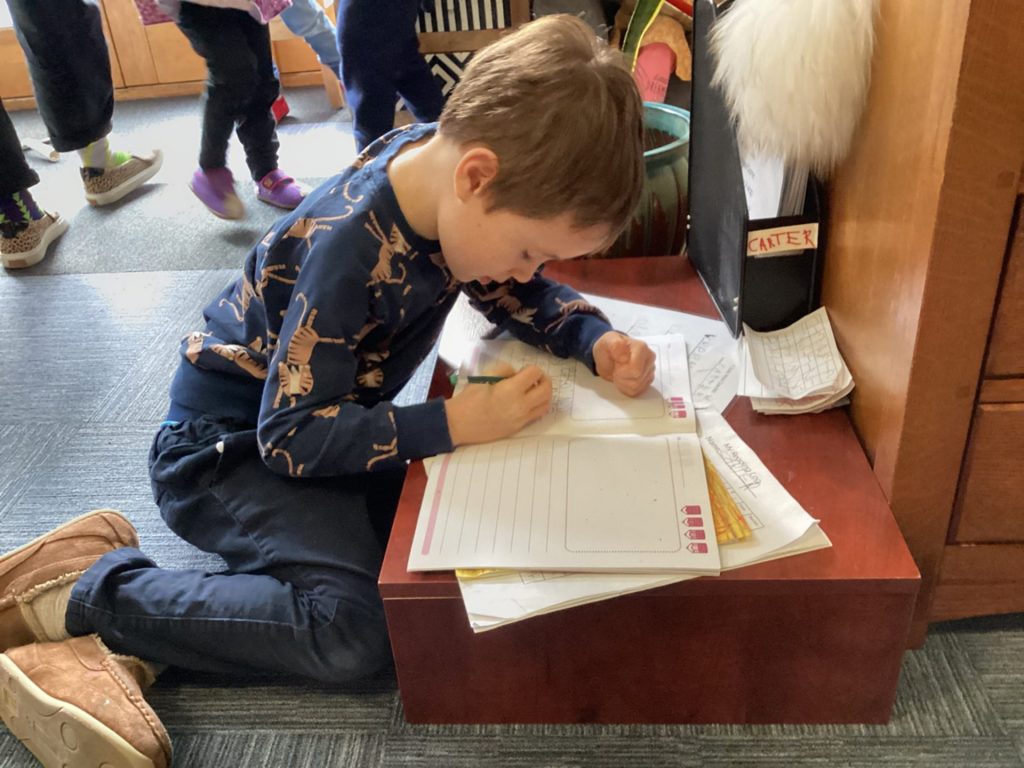
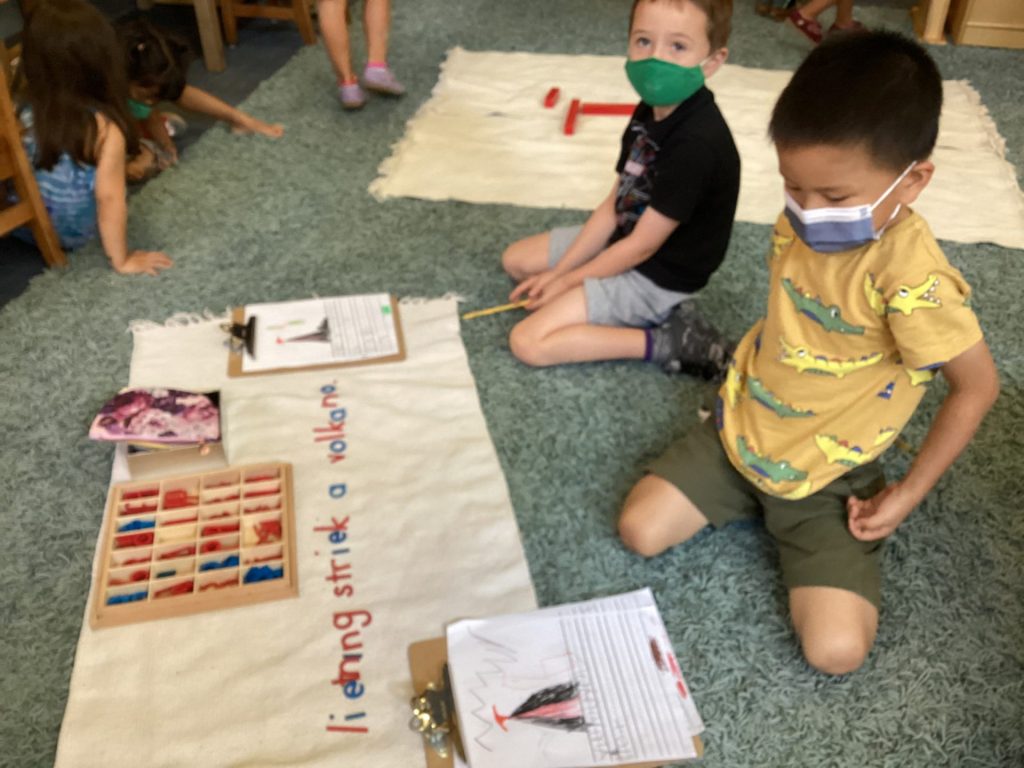
Reading
We help children to learn to read in two processes- much like writing-, mechanical reading and interpretive reading. The mechanics of reading is in the sounding out of words through activities with the phonetic and phonogram materials. (In Montessori, we use the term ‘phonogram’ to refer to blended sounds like ‘sh’ or ‘ee’.) They use all the knowledge of the sounds they gained while writing and apply it to the act of reading.
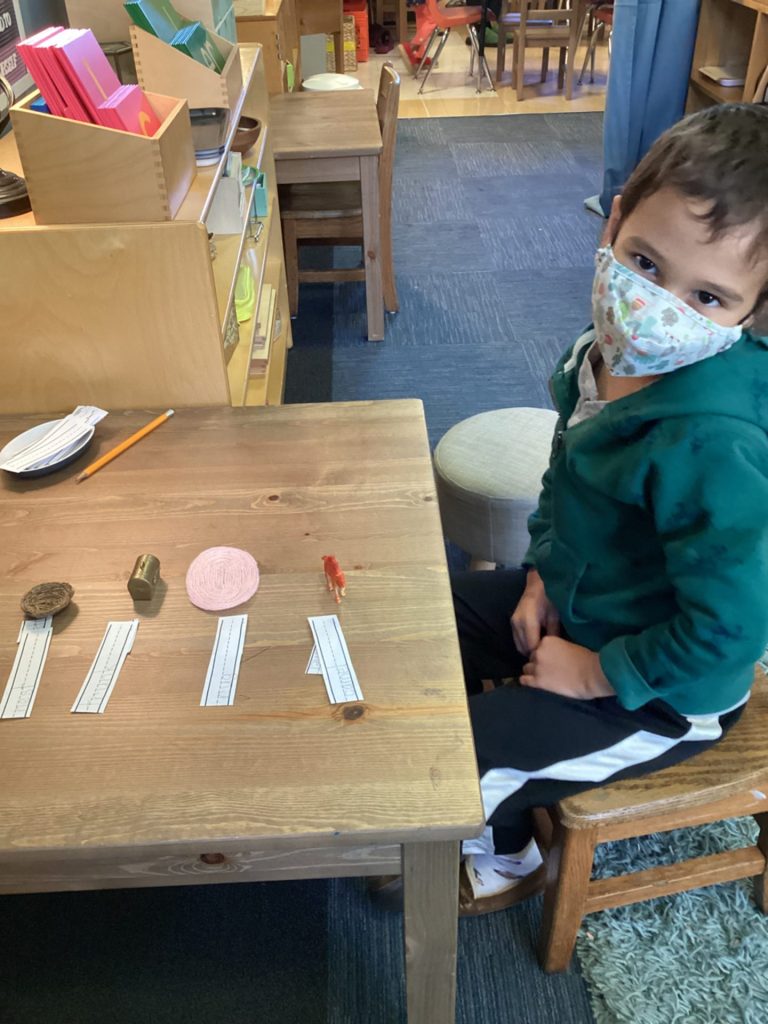
We start with phonetic reading and move on to words with phonograms. As they become more fluid readers, they are introduced to the Function of Words lessons. The lessons of Function of Words help to give children a sensorial impression of word order, syntax, and grammar. These are fun, engaging lessons that allow the children to explore the parts of speech. “We start it with a series of apparatus consisting of small slips in which are written the familiar objects. The child has to recognize the meaning of the word he reads and then places the slip beside the object it indicates. In a second phase we give short sentences indicating actions to be performed. To give ‘names’ teaches the distinction of a particular part of speech- the noun; to give actions makes them distinguish another part of speech- the verb. Thus the first reading exercises can be prepared in such a way as to introduce the grammatical study of language.” (Maria Montessori, The Formation of Man)
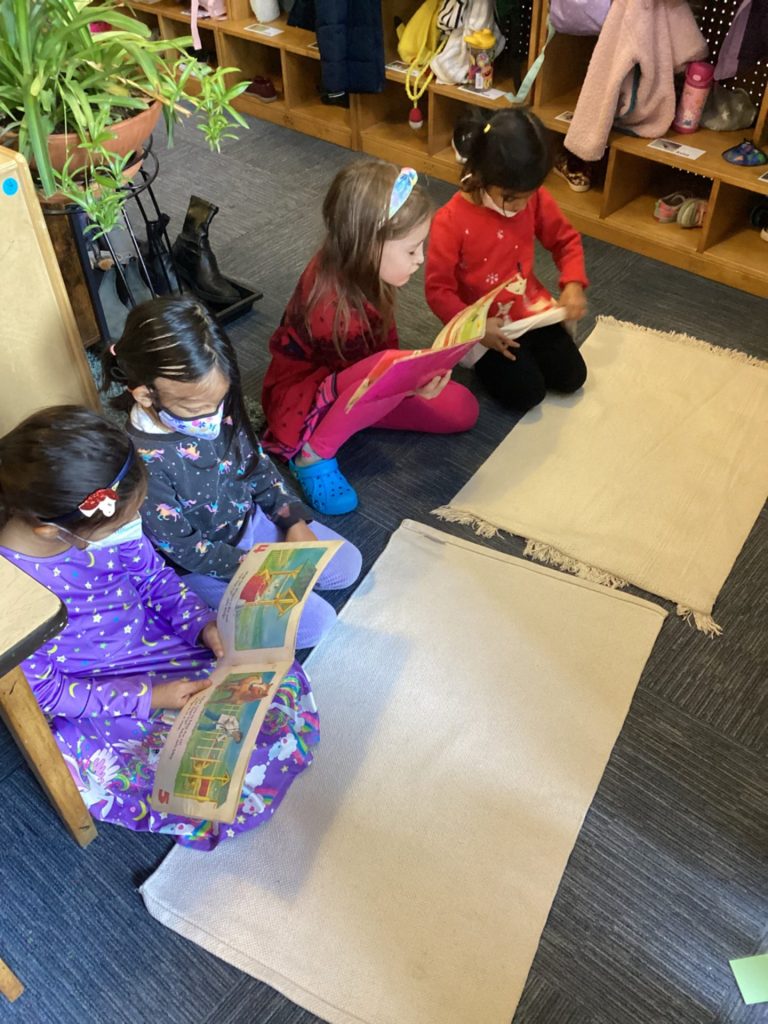
Hopefully, if all these activities are presented and repeated, the result is a child who is what Dr. Montessori calls a ‘total reader.’ Total reading is the ability to interpret all the information that is offered through the use of graphic symbols- including the implied meanings, the emotional implications, and the author’s style. Our hope is that your child becomes a lover of literature and the printed word. We believe that through their experiences in the Primary classroom, your child is perfectly primed to love language. By providing them with the correct and appropriate tools, we can capitalize on their natural abilities and allow language acquisition to be a joyful exploration of their world and their place in it.
A New Face in Primary ADM
At the end of the summer, Primary ADM said a loving goodbye to Ms. Kelly after she accepted a position as a second-grade teacher. We were fortunate to have the help of Ms. Ally for these few past months while we searched for a new Morning Assistant. Happenstance brought Teacher Bailey to Greene Towne as a substitute teacher. We immediately recognized that she would be a wonderful fit for our community and are so happy to say that she accepted the position and has started last week.
Here is a photo and short bio for Bailey:
Hey there! I am originally from West Virginia, but have since taught in a variety of unique classroom settings in countries all around the world, with instructional experience on 4 continents. After moving to Philadelphia, I filled substitute teaching roles with a variety of schools/age groups, including Greene Towne Montessori School. From my first moments in the Primary ADM, I was struck by the commonality of mindset shared by GTMS and myself. Learning is a sacred adventure, and every opportunity to celebrate a child’s hard work deserves to be cherished! When I’m off the clock, I dabble in skateboarding, guitar, woodworking, and any activity that takes place outside.
Upcoming Events
- 12/7, 6:30- 8:00- Journey Through Primary
- This Parent Workshop is open to all and we especially encourage Second-Year Families to attend. We will be highlighting the Montessori curriculum with an emphasis on the keystone Kindergarten year.
- This event will be in-person at 2121 Arch St. and on Zoom.
- 12/23- 1/2- Winter Break: SCHOOL IS CLOSED
- 1/16- Martin Luther King Day: SCHOOL IS CLOSED
- 2/3 at 8:15- PADM Parent Coffee
- This event will be in-person at 2133 Arch st. and on Zoom.
- 2/13-2/17- Moving Week (!): SCHOOL IS CLOSED
We hope to see you on Wednesday for the workshop where Ms. Amanda and Ms. Maggie will be presenting on- you guessed it- Language!
Best wishes,
Ms. Maggie, Ms. Amanda, Ms. Allison, Ms. Ally, Teacher Bailey, Ms. J, and Ms. Shawn
